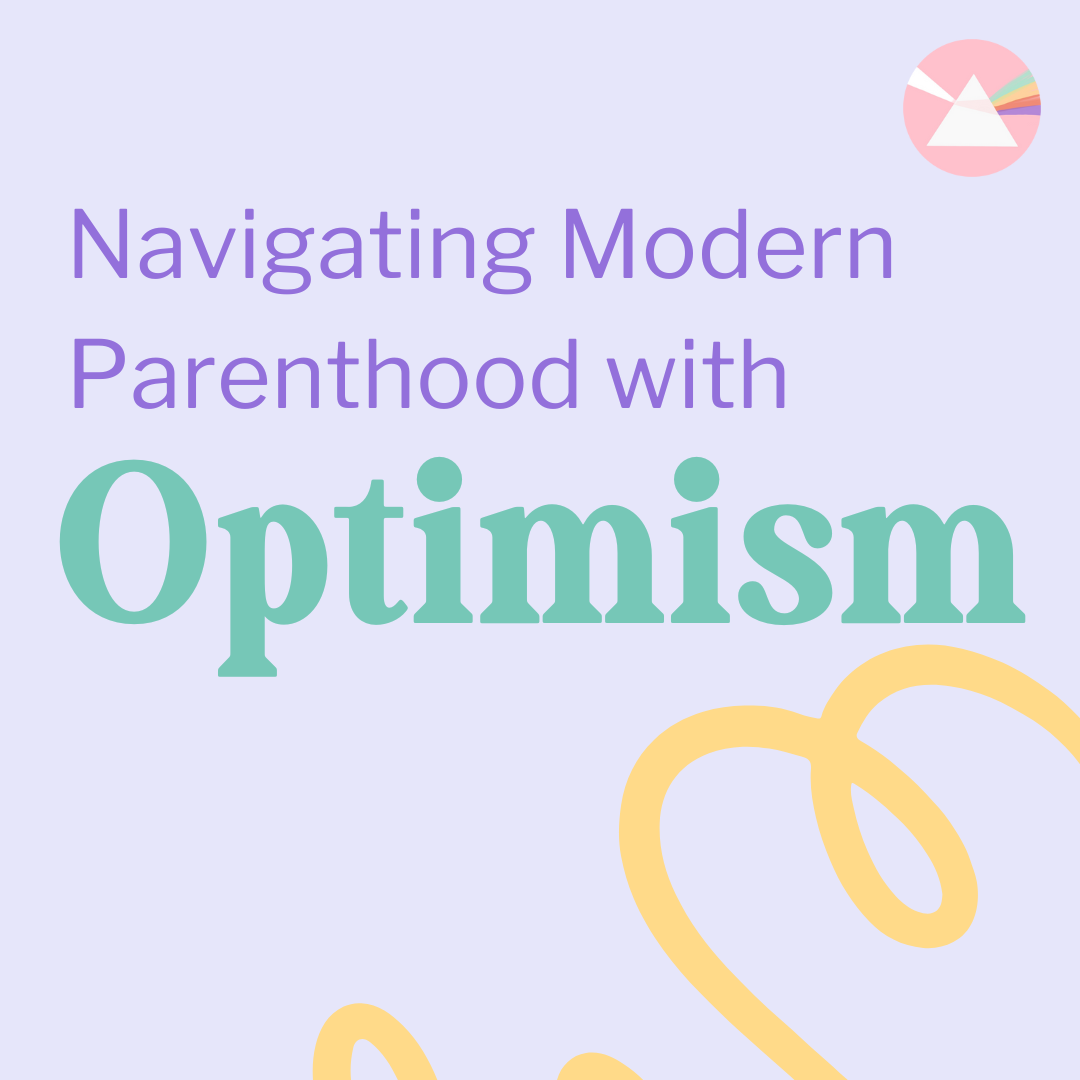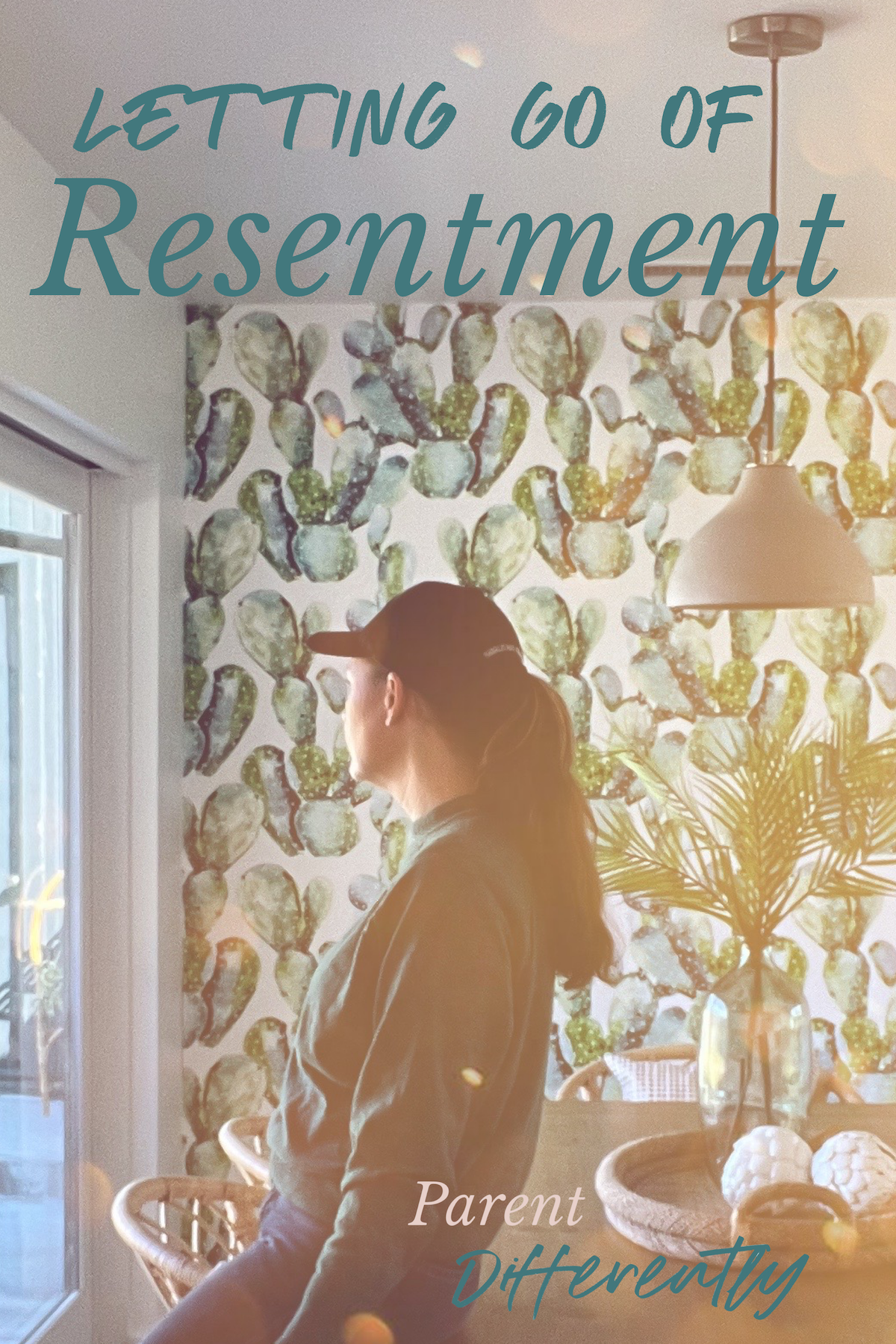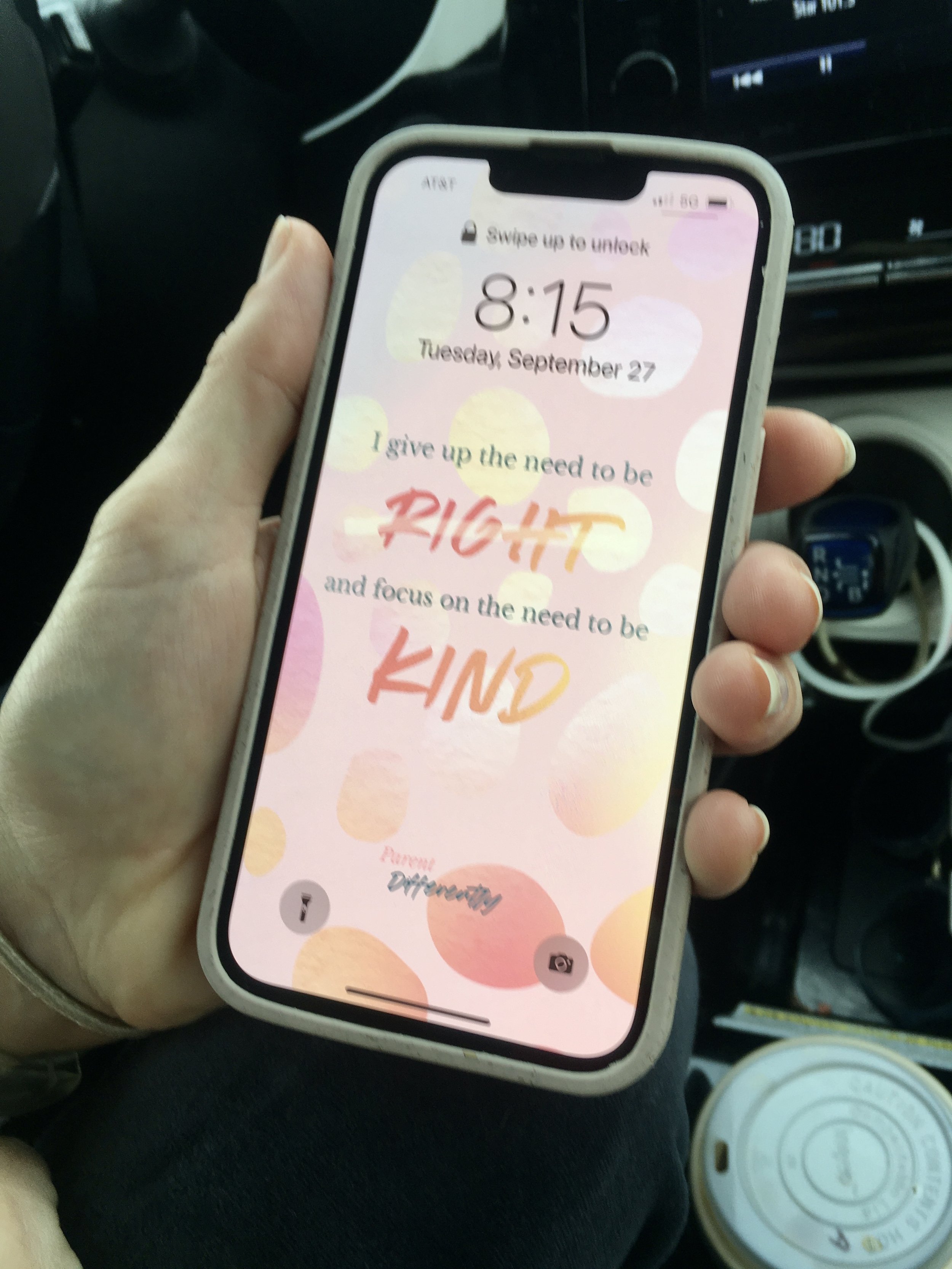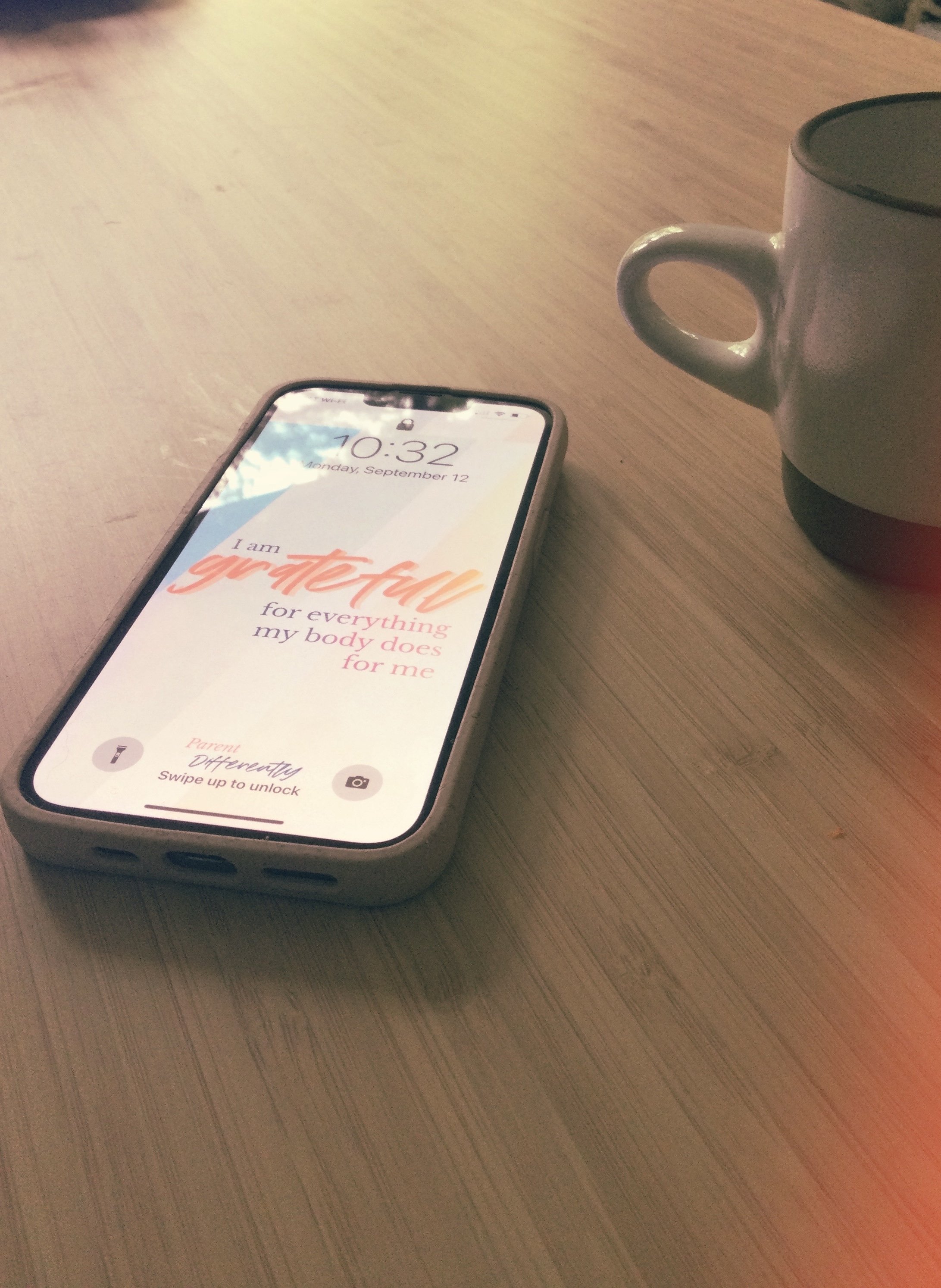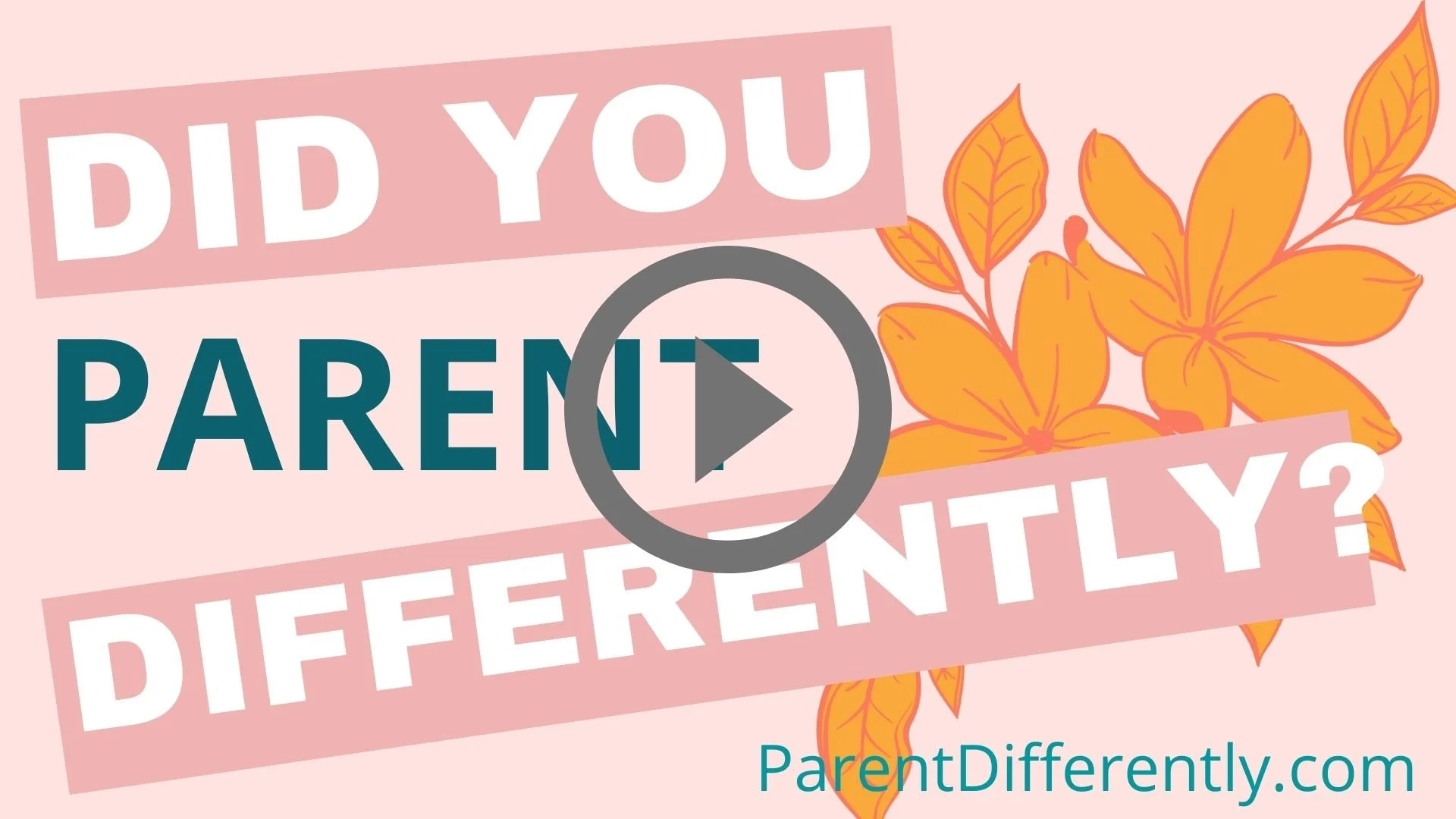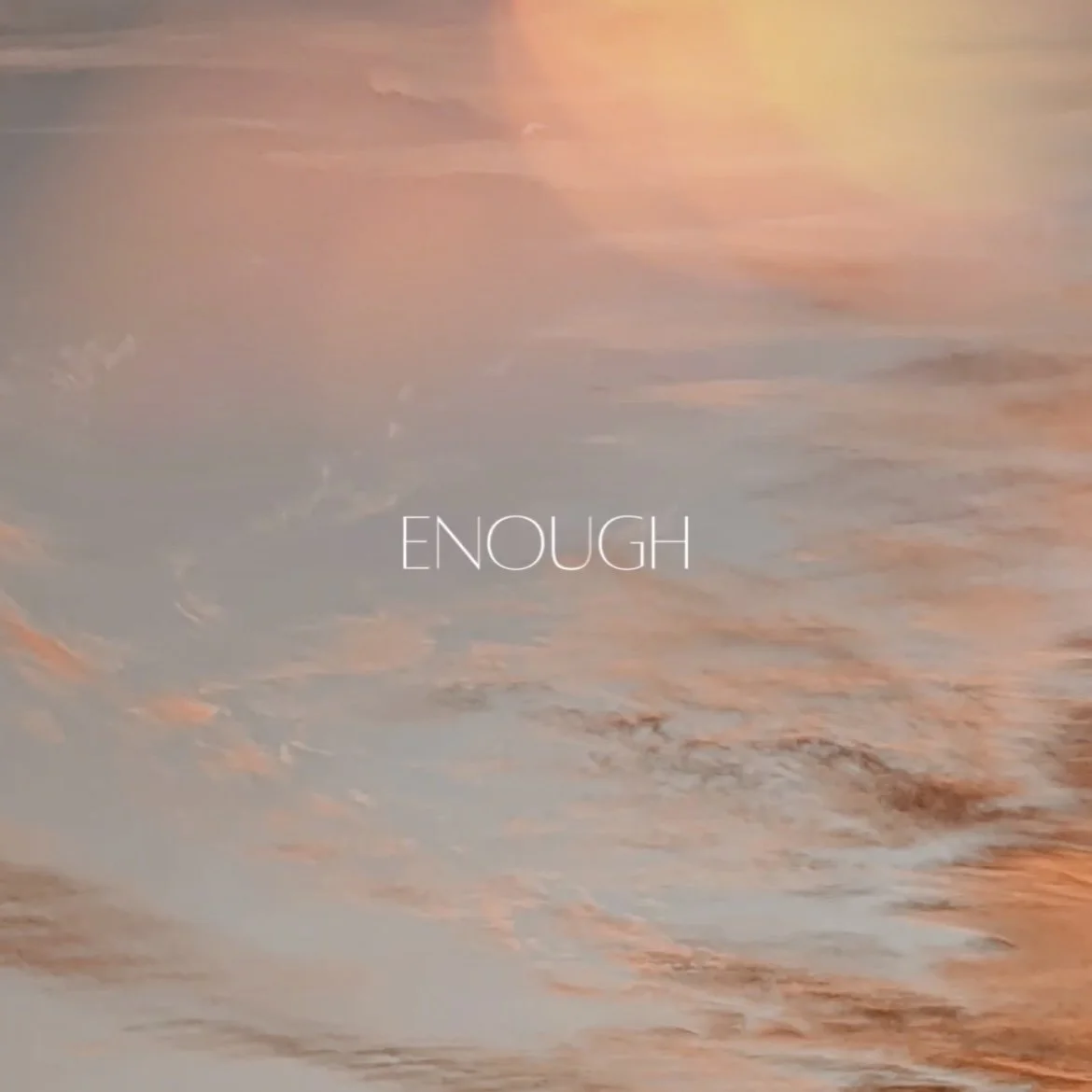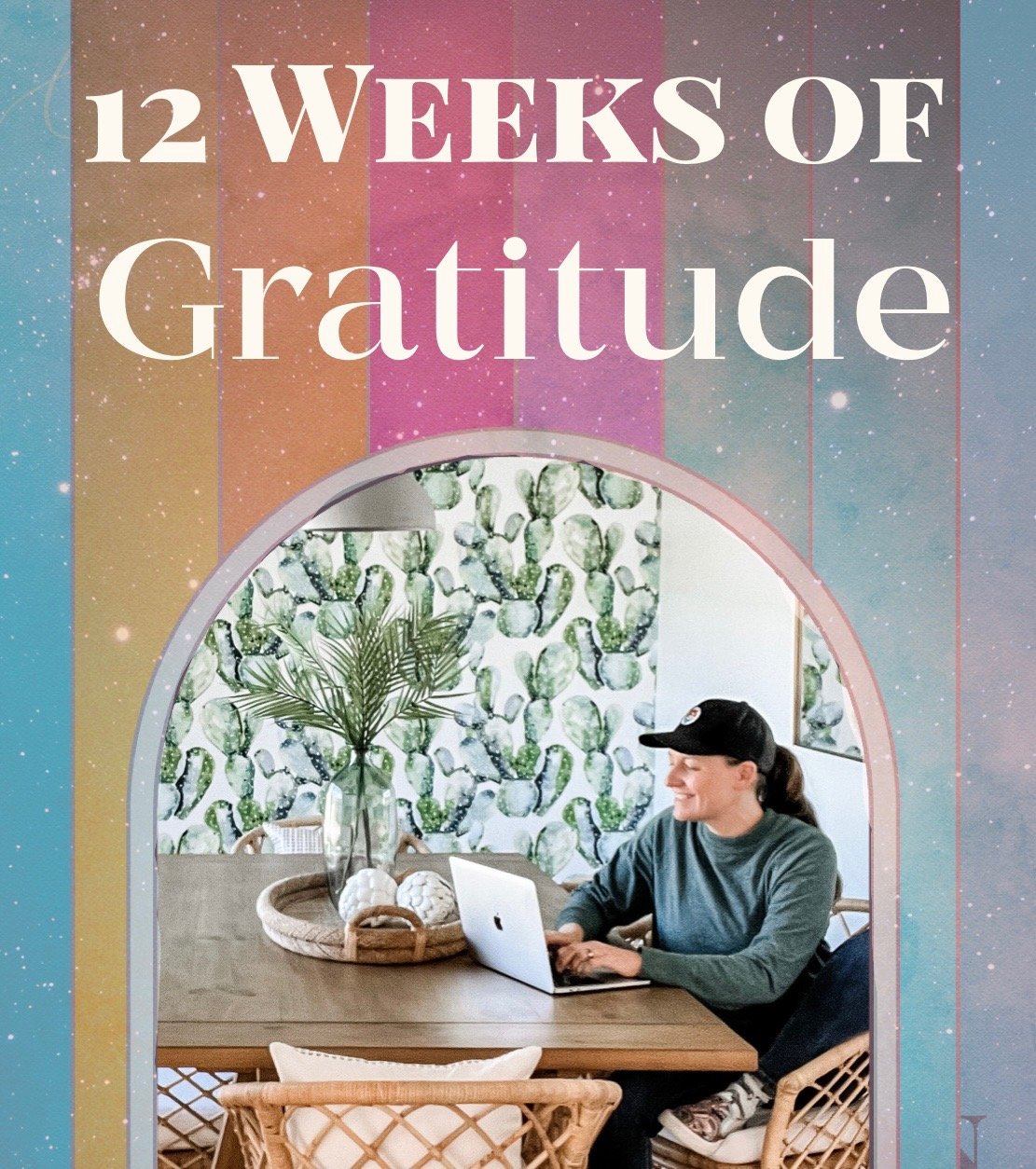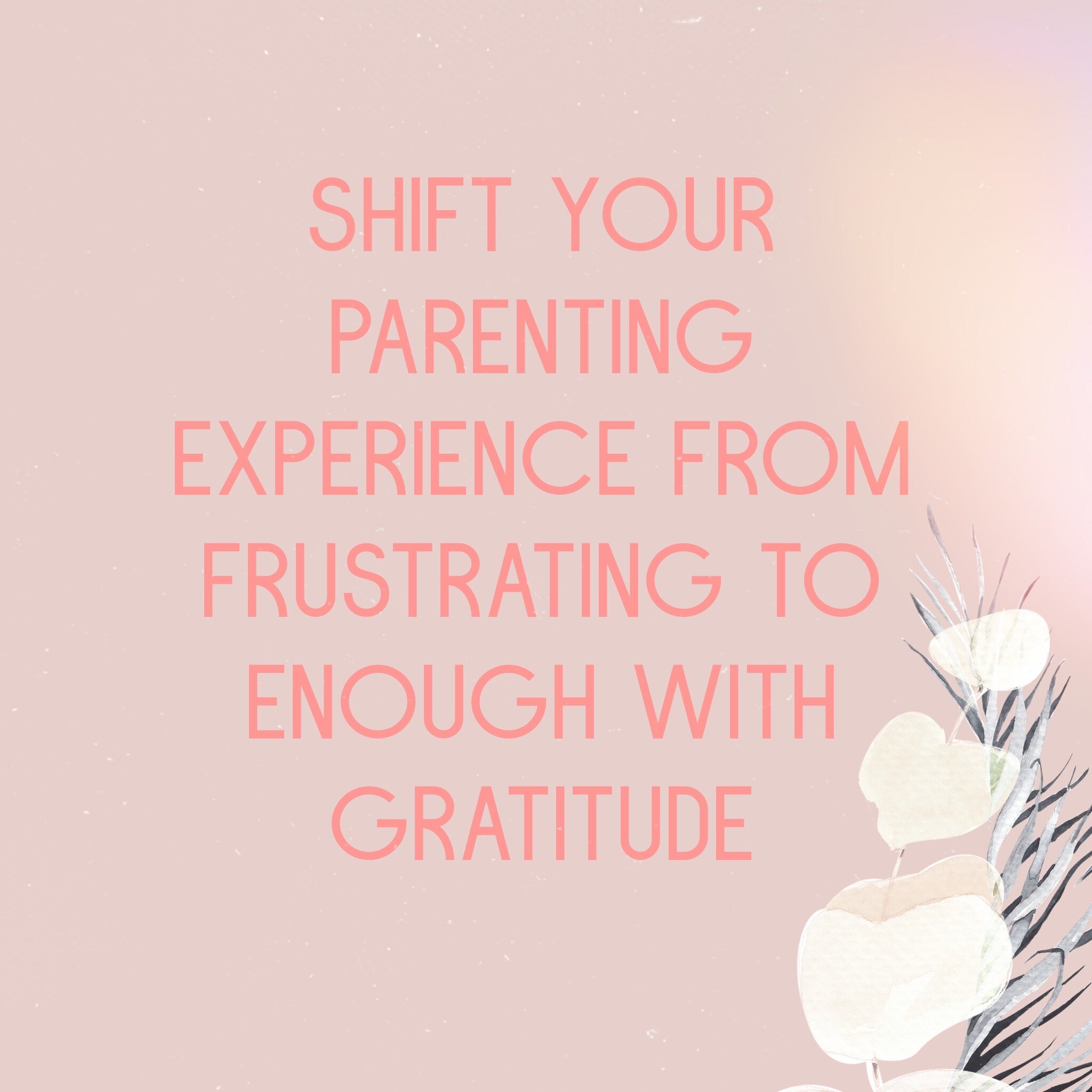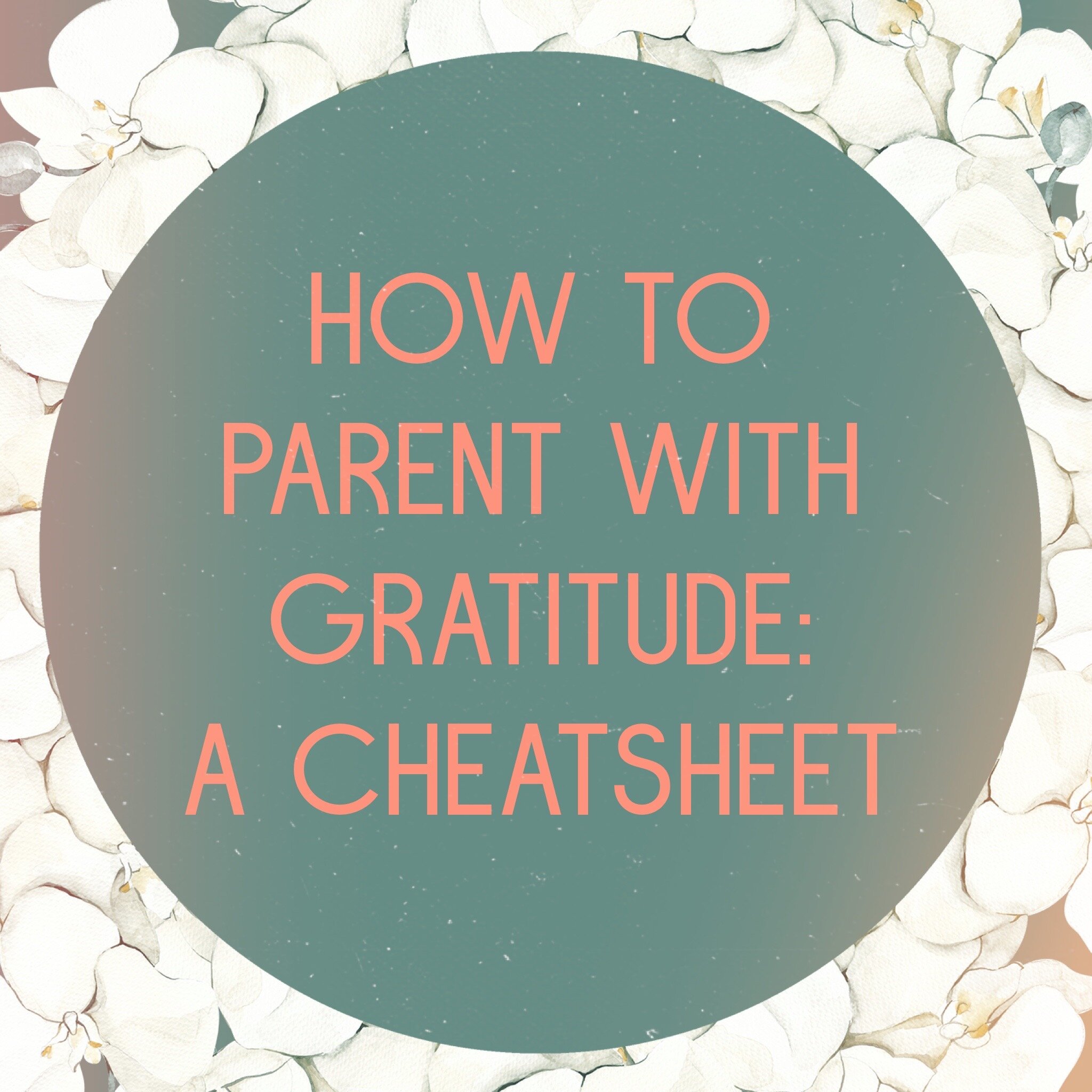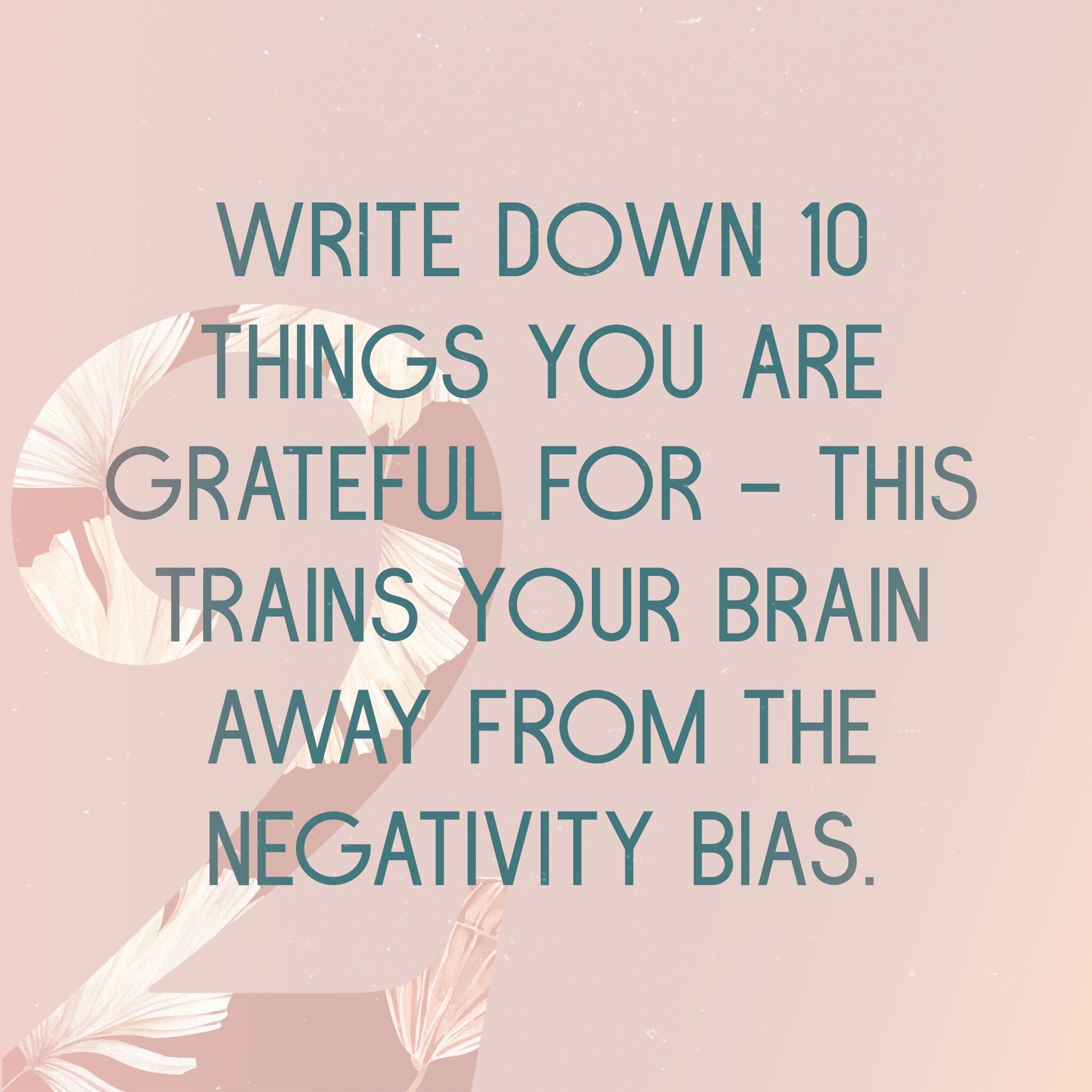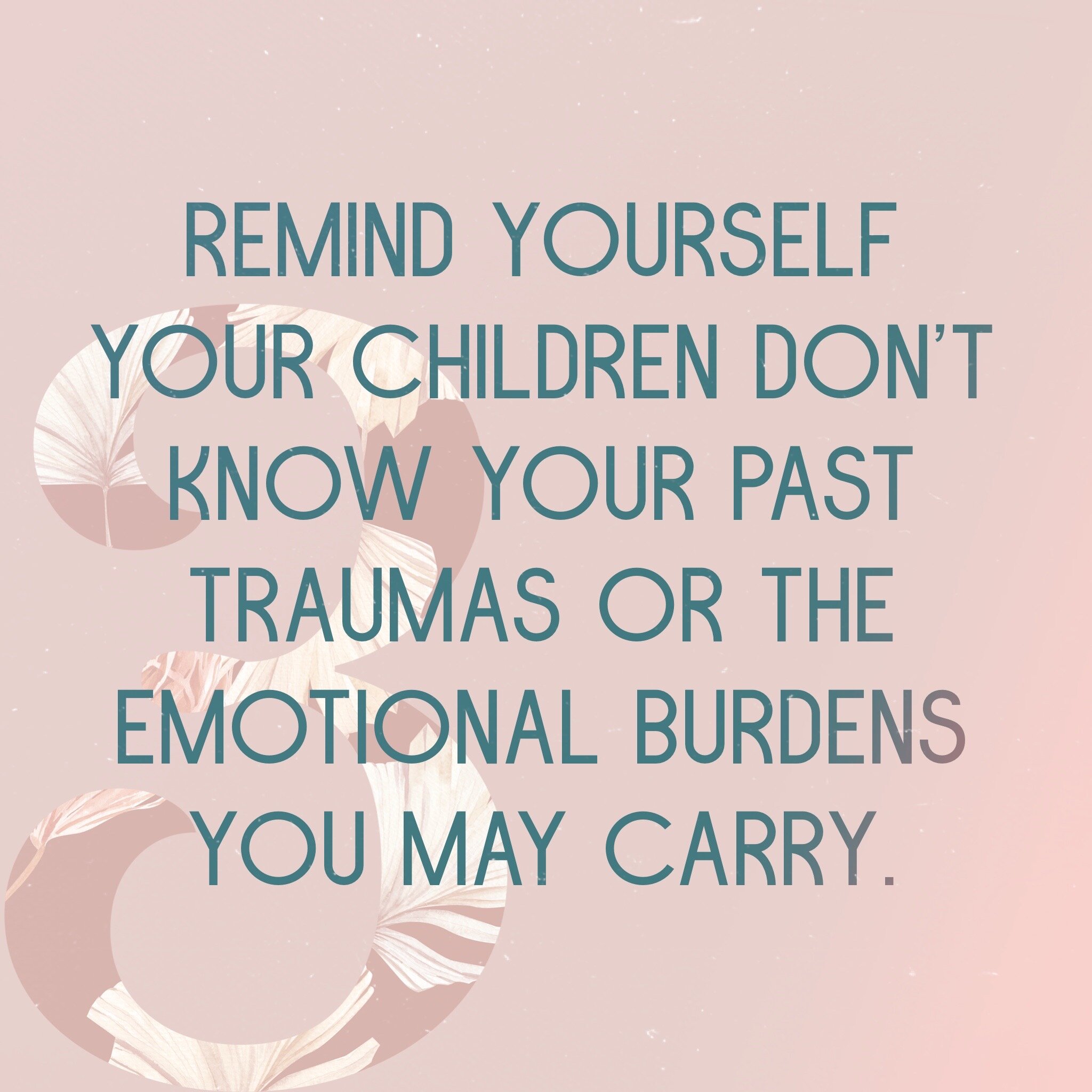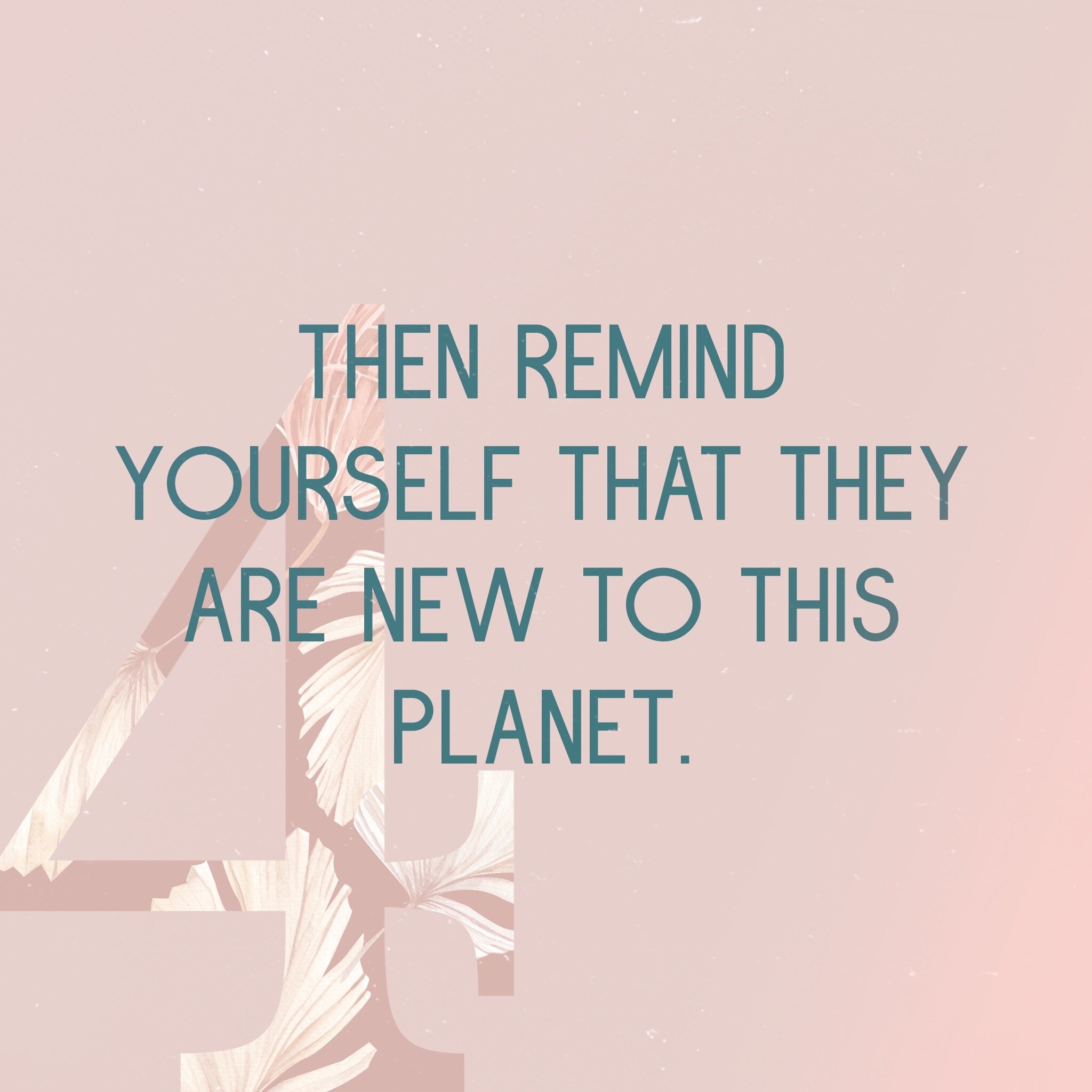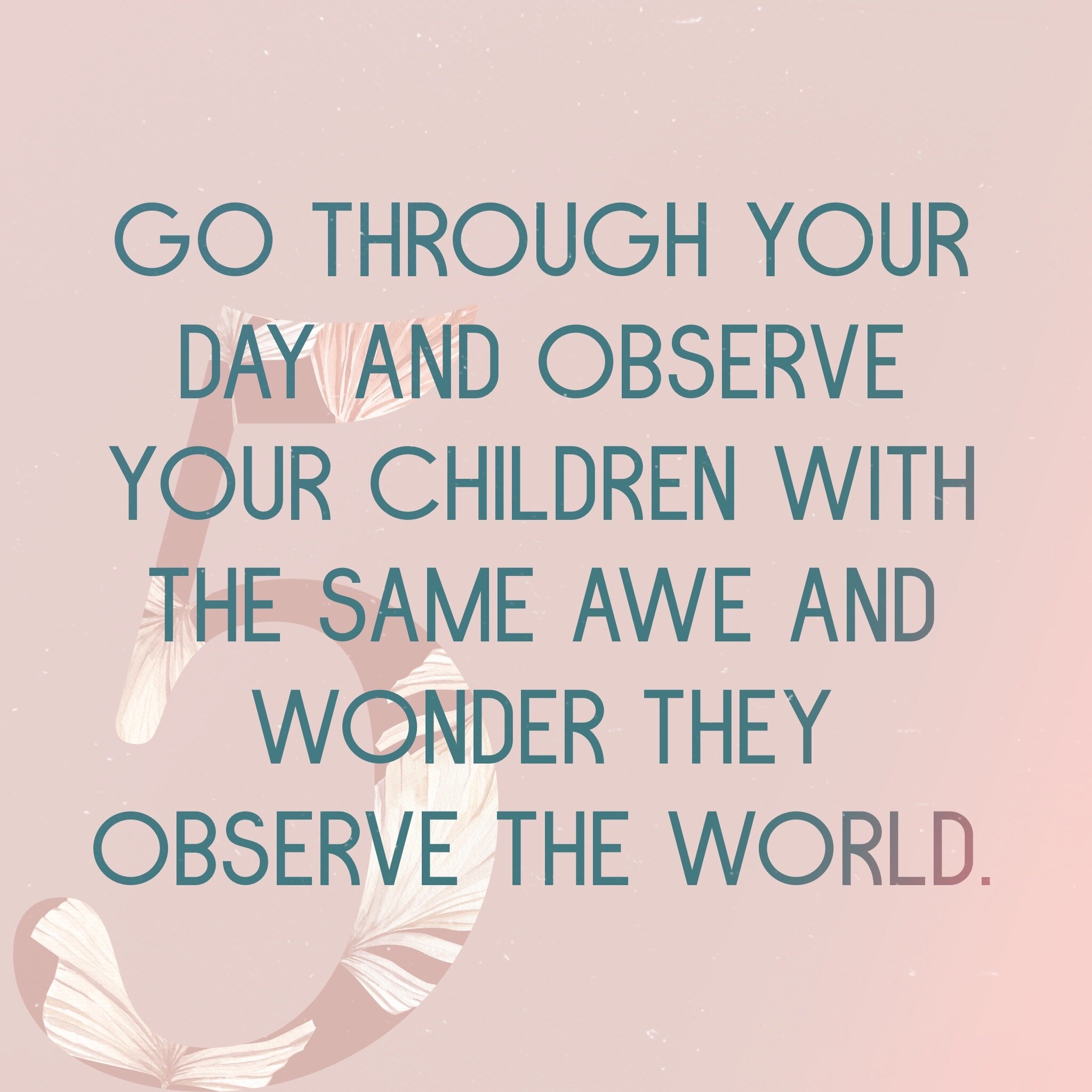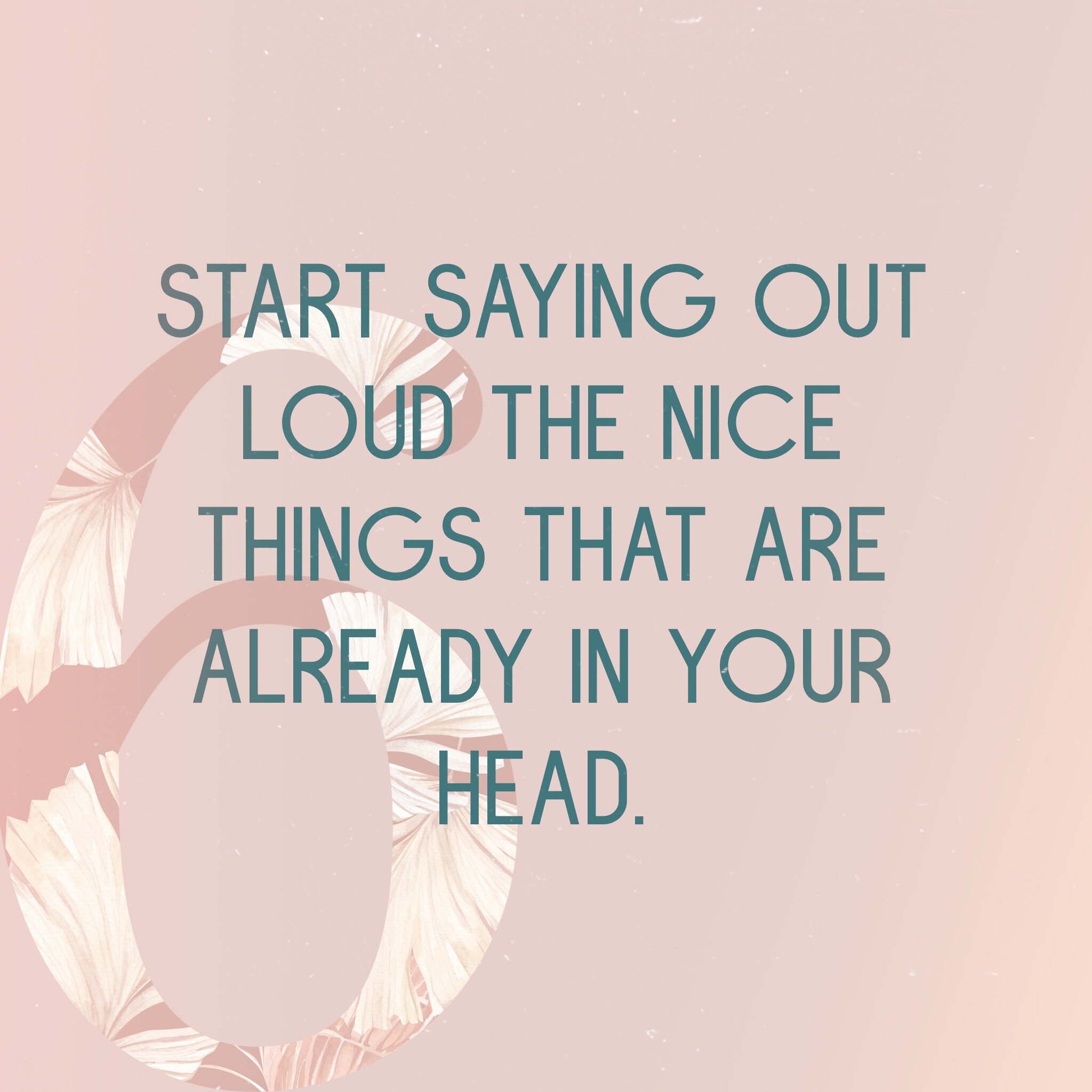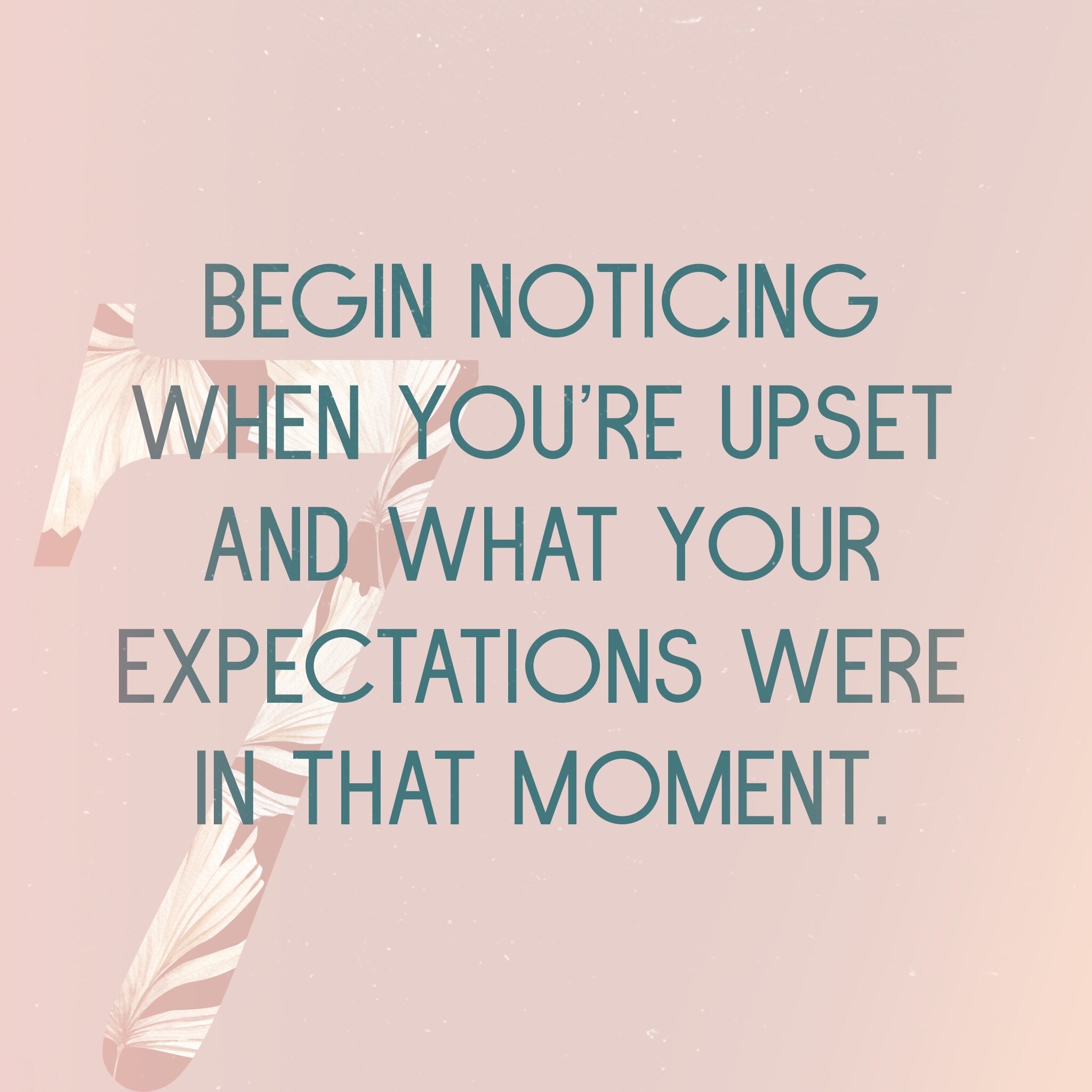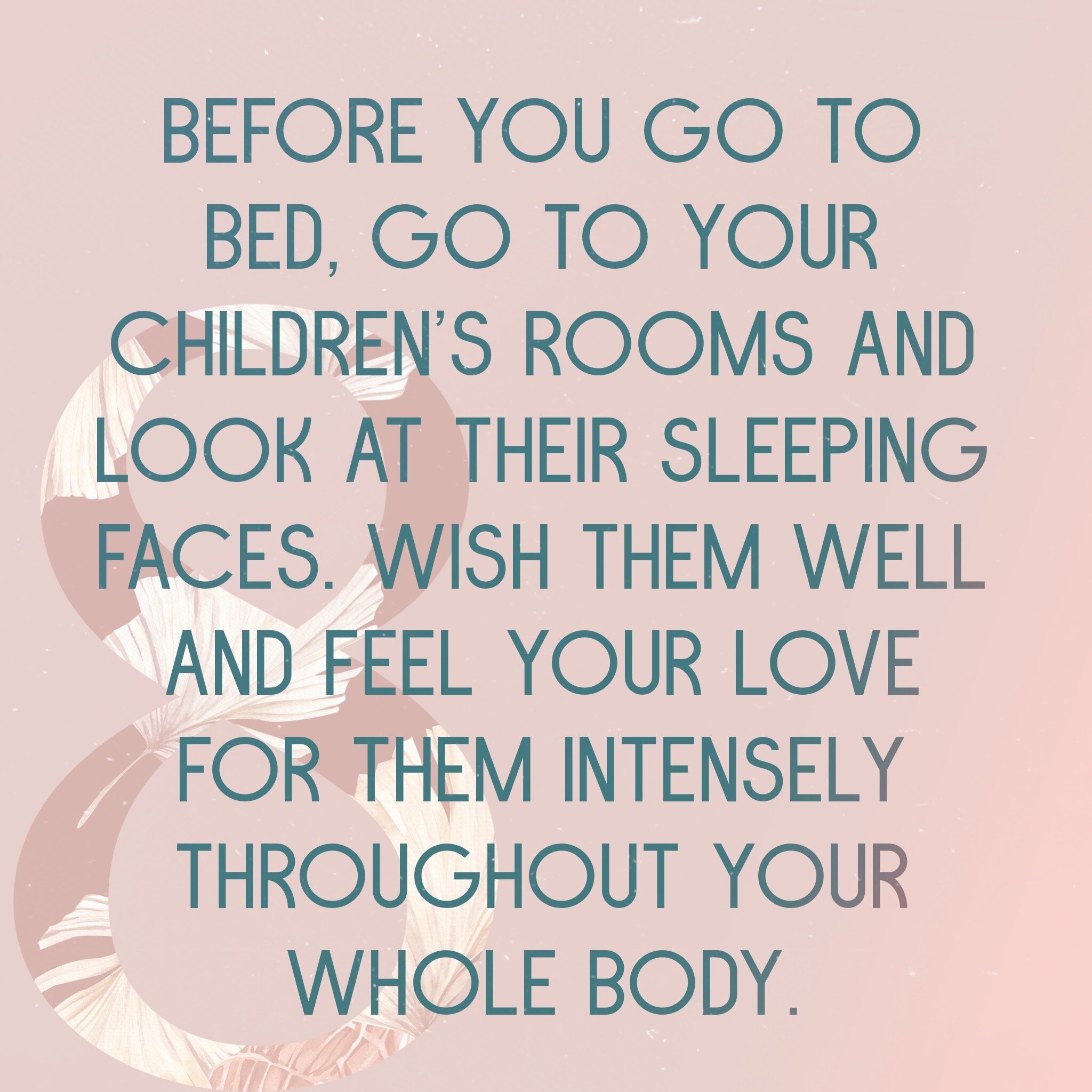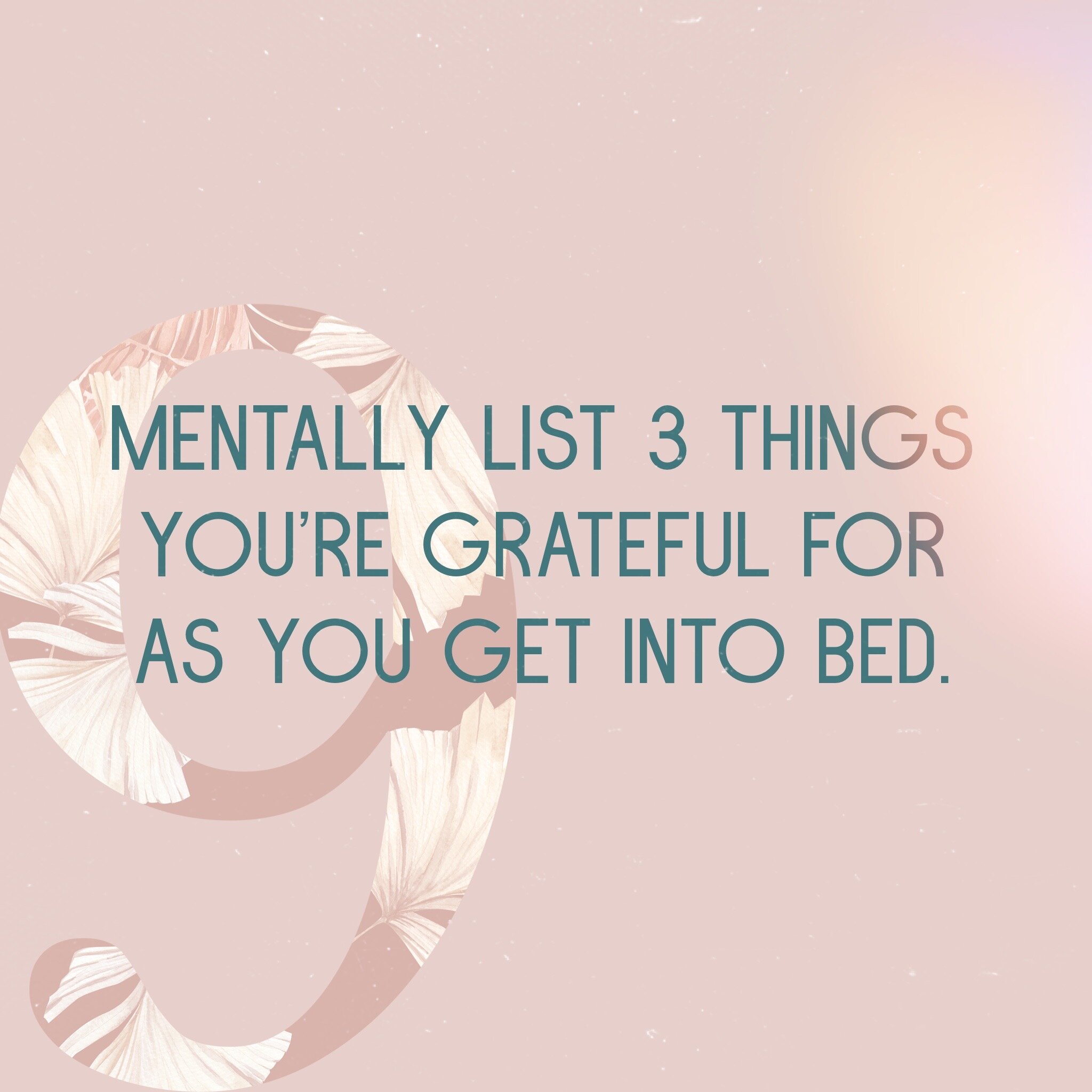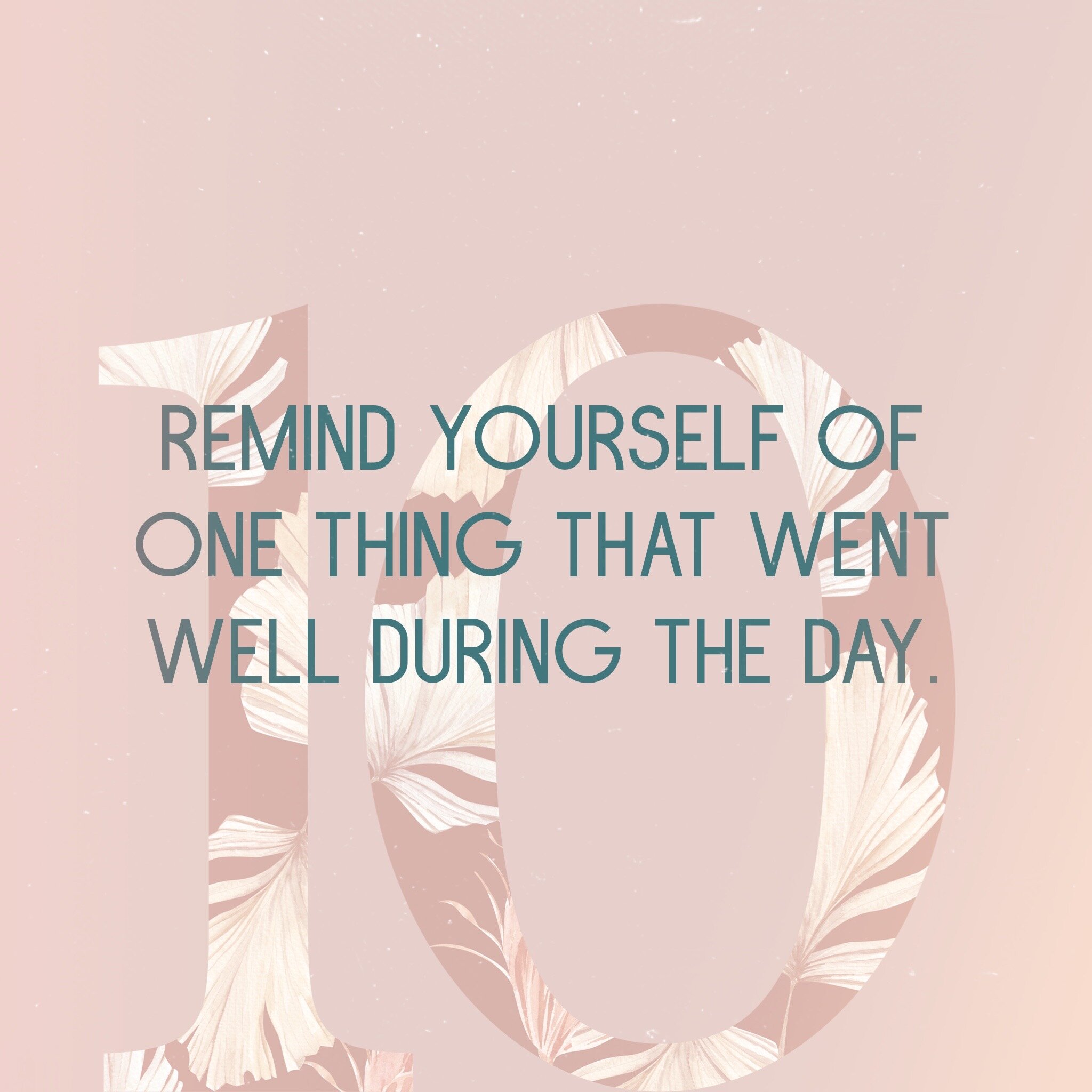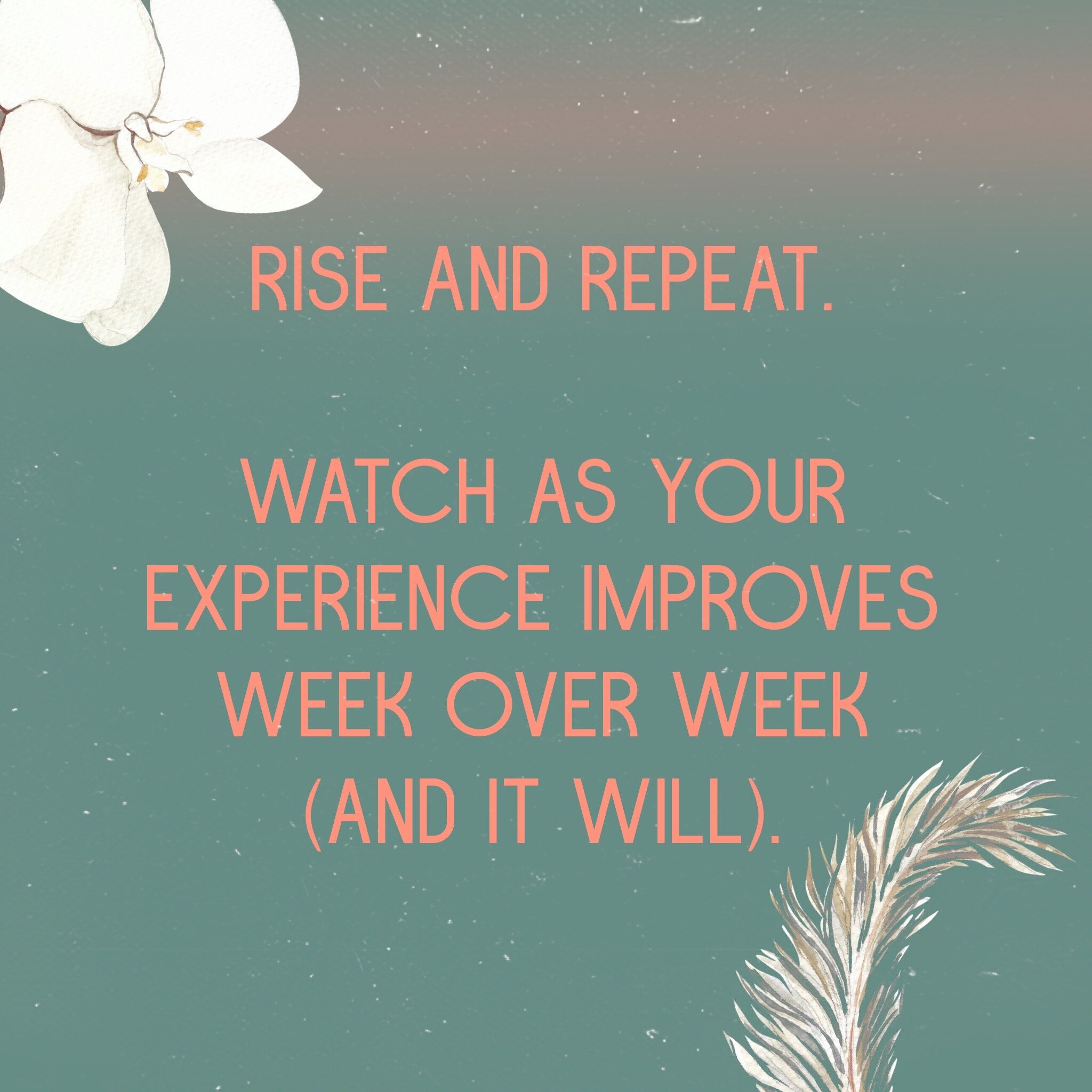How Often Should I Practice Gratitude?
Not everyone is going to agree on what is optimal for how often to practice gratitude (even the scientists are split) but I have a clear reason why every day should be your goal.
Listen to this blog post as a podcast
Experts like Dr. Scott Barry Kaufman and Dr. Laurie Santos say you can experience a real bump in your overall well-being by adding a repeating gratitude practice to your daily life. And I want you to feel that bump because I know you need it. However, we aren’t going to get there without doing the work.
Sure, writing in a gratitude journal once definitely improves your mood. But it’s like exercise: If you want results, you need to stick with it. You aren’t going to improve your heart health with a week of gym workouts - it’s more likely that an overall lifestyle change of consistent exercise, healthy eating, more water, and fewer determinantal choices will make the difference.
Committing to methods that positive psychologists have proven beneficial means making a lifestyle shift.
It also means trying out things that may or may not work - for me, it was gratitude. For a friend, it was self-compassion.
Look, when I committed to daily exercise, I started with HIIT workouts - and I hated doing them, but as soon as I switched to walking every day, my mood improved, and so did my health. For me, gratitude works - and it may work for you - but you won’t know until you give it an honest try to commit to and start the daily work.
And the question I usually get next is – is a daily or weekly reflection the most effective? Well, even though I am a proponent of making a daily list of things you are grateful for, I also know that science goes back and forth on this. In that way, it is different than exercise (although we all know the importance of a rest day for our body and stamina).
Some studies show if you save up all your positive emotion work for one day a week, it may have a bigger impact on your mental health than doing it every day. My issue with a weekly practice is I just don’t see us busy moms sticking with a one-day-a-week habit, I can barely remember which day my son has piano - but I brush my teeth every day and even remember deodorant.
In this study, named: Pursuing Happiness: The Architecture of Sustainable Change – they conclude it’s the intensity of the feeling that is lost if we, as they did, go out and try to do one good thing for other people every day. They found the positive benefits of that act were actually less impactful because it got folded up into all the other kind things we do regularly. But if we were to do like 5 or 6 awesome acts of kindness in one day - well yeah, I would remember that a lot longer, that’s for sure.
But what this particular study does not consider is something I know well - everyday parenting life. Even before I had kids of my own, as a professional nanny, it was my job to understand the demands of modern parenting. I know the ebbs and flows of sicknesses, disasters, regressions, and LIFE. Life happens with kids.
And that’s the main reason I stand by a daily practice as the most impactful way to practice gratitude for parents because the real secret is…I know you're not gonna do it every day – I just know it. Catastrophes happen every other day - and the gratitude list will be the first thing to go. I know it because it happens to me too.
And so I’m going to stick to this “every day” thing here because I want you to experience the cognitive changes that really do happen if, in reality, you only end up practicing 2 or 3 days as a result of our hectics lives. THAT’S A WIN in my book.
The other reason I think daily practice is doable is that I believe we have more to be grateful for than people without kids. Is that going to get me in trouble? Probably, but we are keeping small humans alive here - small humans and sometimes multiple humans at once!
The way I define gratitude changed when I had kids. I am not talking about your average “Thank You” card here. I believe that when you become a parent, gratitude just hits differently. And so we are talking about what I call: Parental Gratitude.
My definition goes beyond the altruistic acts of traditional gratitude. I think it is more intangible than that, more closely related to what some researchers call Existential Gratitude - like the deep gratitude we feel just to be alive. In 2019, Dutch researchers Lillian Jans Beken and Paul T.P Wong found that existential gratitude is distinct from the more general dispositional gratitude. Look, I use them both, to be honest, when I make a list, but if you are looking for a high level of intensity, the gratitude I feel surrounding my children is the one. For me, parental gratitude is as easy as finding something to be grateful for when you go for a walk. And so, based on this, can you make a list of 5 to 10 things each day with the intensity needed to really feel them and have them stay? I think so. And if you can’t do 10, do 4 super deeply.
And finally, the last reason I strongly encourage you to practice daily is the value you will get from pushing through the more challenging days to do it.
“There will be days when you feel like doing anything other than finding reasons to be grateful, but pushing through these days will empower you and help you build the strength and resilience necessary to push through other challenges.” - says JASON MARSH, the executive director of The Greater Good Science Center at Cal Berkeley
And so, I have a few gratitude practice options for you:
You can do the 3:33 pm Alarm - click here for more on that one.
You can choose a weekly Gratitude Day where you journal or choose a gratitude practice that you engage intensely with throughout the day, and you do it every week.
Or finally, if you want to give the daily habit a try, you can Habit Stack - this means finding another habit you are already committed to, like brushing your teeth, skincare, drinking that afternoon cup of coffee, and adding your gratitude list to that time. “Every day when I have a second cup of coffee I will list 4 things I am grateful for.”
Finally – take breaks from your gratitude routine if you feel like the effects are not as strong or you are not feeling your thankfulness intensely as you had in the past.
I have had this happen numerous times over the past 4 years. I simply take a break for a month or two, and when I begin to feel like something is off again, I remember to pick it back up. As my favorite gratitude researcher Professor Emmons says: “We adapt to positive events quickly, especially if we constantly focus on them,” “It seems counterintuitive, but it is how the mind works.”
So not that you need it, you have my permission to take a few days off, and don’t get discouraged! This isn’t everyone’s stepping stone to a more mindful parenting experience, but it is for some, and I hope you give it a solid try before moving on to something else. And remember, you are a Good AF Mom already. - Stef
Other posts on Gratitude:
Learning to Let Go of Resentment
This will sound weird, but Beyoncé helped me deal with my resentment. Specifically, the resentment around my partner not helping - after we had our first baby, sure, but even later once we had two, and they were much older. The resentment and indignation had built up - and bitterness had taken over my mind and thoughts.
Letting go exercises Listen today!
This will sound weird, but Beyoncé helped me to deal with my resentment. Specifically, the resentment around my partner not helping - after we had our first baby, sure, but even later once we had two, and they were much older. The resentment and indignation had built up - and bitterness had taken over my mind and thoughts.
Let’s be honest, parenthood is not evenly balanced in this country, and most of the weight still lands on mothers. So, when I tell you that I am carrying less resentment than ever before, you may be surprised. After all, it feels like a natural part of parenthood these days, doesn’t it?
During her HBO special Atlas of the Heart, Brené Brown shared that the emotion of resentment was NOT in the anger family as she had previously believed – an emotions researcher had clarified to her that resentment was actually part of the Envy family,
It was a bit of a shocker for me to hear that – the injustices of our culture, the unfair emotional load inside my own home - that shit made me mad.
And so I had to take a hard look at my resentment (and there was plenty to look at) — and well, crap. envy was the real culprit, and the anger was just a reaction to it all.
As I looked over many of my mothering years, I could see envy play out in each and every painful instance of bitterness. Some were harder than others to equate to envy - but some were pretty obvious: Resenting friends who traveled during the pandemic quarantine - yep, that was actually envy. Resenting my mother-in-law for taking up so much of my time, yep, envy, because she was more engaged than my own. Resenting the moms who looked like they stepped off the Met Gala red carpet at school pick up, yep, I was definitely envious of their sense style because I never know where to start.
I have always been jealous of my husband’s role as a non-primary parent. Maybe you have been too? Non-primary caregivers (still largely a role played by men) have a different experience in this country. While we get to know ourselves as entirely new people, they get up every day and go to work. My husband kept his same friends, his same after-work happy hours, and his same commute. And then, when he was home, he was a parent, TOO – how could resentment not grow out of that?
And after more than a decade of parenting together, not much has changed. He still has a very different experience living (and thriving!?) within parenthood. Yes, he is an actively engaged parent. He takes large swaths of the weekends to play with the kids so I can disappear, he cleans up after them, and throws a few activity books in a bag when we go out to dinner (without me asking!!) – but his identity just hadn’t morphed in the drastic ways that mine has over the years.
Flashing back to the shitshow that was 2020, we are suddenly thrown into a global crisis together, and boom! things got really obvious. Sure I had been a parent for ten years, but I hadn’t been “on” like this since the newborn days: full-time parenting, crisis schooling, making breakfast, lunch, and dinner for four people every. single. day. and trying to maintain my business, writing, and creative outlets (ha!). Peak resentment level - unlocked!
Do you remember what it felt like? Life had dramatically changed, but my partner’s had only changed slightly: he was home now, and bonus! it came with homemade meals. The bitterness reached critical mass when it became the first thing on my mind every single day as I rolled myself out of bed. All the ways this situation was unfair to me and not to him screaming to fill the void – yeah, not such a great way to start your day.
This habit of rumination took me forever to notice, but when I did, I didn’t like it. I didn't like waking up in a “mood.” We were already going through so much as a family my children and my partner did not need me starting off on the wrong foot. And so, I decided to give the practice of noticing my thoughts a try every morning as I woke up.
And I did this for a while, maybe two or three weeks! And as I noticed all the negativity that lived inside my morning fog, I also noticed a competing force. I actually could hear something else. Songs. At first, it was frustrating too, like: Why am I constantly fighting with these songs that are stuck in my head!? I'm trying to listen for my resentment! I was trying hard not to let my wrath take charge of my day, but all I could hear was Justin Beiber or Beyoncé.
And then one day, I was like – you know what? I need to start listening to these songs because they're consistently around and not going away. And I gave up fighting them and began to listen every morning. And the songs were really quite upbeat. This was amazing because it was just what I had been looking for – moments of feeling good and uplifted. And so every morning I listened, grabbed onto the hook, and held on for dear life – and it would get me through the day.
And slowly, as I switched my attention to the songs, the resentful thoughts faded.
And now, two years later, I get excited to wake up each morning to see what songs are in my head – because I think it’s my subconscious trying to give me a message: Okay, today you need to focus on this or reflect on that from yesterday – use this song. It's a rewarding and enriching experience I have with myself every morning. And it's because I had the courage to look at my habitual thoughts – my envy – and say, “What's going on here?”
We aren’t all going to wake up to the Queen B, but there are plenty of opportunities for healing that are right under our noses. When we stop giving all our attention to our habitual thoughts (especially to those rooted in emotions that aren’t what they seem - resentment, I’m looking at you) and try out the simple practice of just noticing, we can take a more thoughtful approach to our daily lives, and even open up a little room for something a bit more Irreplaceable. - Stef
Join the Free 90-Day Gratitude Challenge
🎟
Join the Free 90-Day Gratitude Challenge 🎟
More Articles on Mindset:
Three Main Benefits of Parenting with Gratitude
You won’t want to miss this post because it will explain why gratitude is going to change your relationship with motherhood.
Listen to the Latest Episode
Subscribe on iTunesThe Three Benefits of Parenting with Gratitude
Parenting is hard—there’s no denying it. But what if shifting your focus could make it feel more fulfilling, even joyful?
Parenting with gratitude© doesn’t just help you notice the good; it transforms the way you show up for your kids and yourself.
Here are three key benefits of parenting with gratitude©:
1. Gratitude Builds Resilience
Parenting is full of challenges, but gratitude changes the way you respond to them. When you focus on what’s working—like the small wins or moments of connection—you build emotional resilience. Gratitude strengthens your ability to bounce forward after tough days, making you more present and patient for the next while allowing you to see the skills and strengths you bring to the role.
Quick tip: At the end of each day, write down one small parenting win, even if it’s as simple as, “I made it through today.”
2. Gratitude Enhances Connection
Gratitude helps you see your child for who they are—messy emotions and all. By appreciating their unique qualities, you strengthen your bond and build mutual respect. When children feel valued, their confidence grows, and your relationship deepens. Gratitude also allows you to see all the helpers in your life–because while modern parenthood can feel lonely, there are still people in our lives that show up for us in small ways every day.
Try this: During tough moments, pause and ask yourself, “What do I appreciate about my child right now?” or “Who helped me today?”
3. Gratitude Shifts Perspective
When you focus on gratitude, the daily grind of parenting feels less like an endless to-do list and more like an opportunity for growth. Gratitude widens your perspective, helping you see challenges as part of a bigger picture instead of just frustrations.
Example: That tantrum? It’s not just a meltdown—it’s a chance to teach emotional regulation, both for your child and yourself.
Start Small: A Gratitude Practice for Parents
Parenting with gratitude doesn’t mean ignoring the hard stuff. It’s about balancing the hard moments with a purposeful practice of noticing the joy, the growth, and the small wins. Start by looking for one thing you’re grateful for each day—about your child, your partner, or even yourself. Over time, these small moments build up into a more fulfilling parenting journey.
Want to dive deeper into the benefits of gratitude? Read more here or sign up for weekly practices to bring gratitude into your daily life.
Gratitude: a Stepping Stone to a More Mindful Life
I am obsessed with gratitude because it has changed how I view the world. I grew up in New England, so I celebrated the negative. But that all changed…
Listen to this post as a podcast:
Gratitude: A Stepping Stone to a More Mindful Life
Hi, it’s me, Stef, again. Here to talk to you about parenting differently with gratitude. I am obsessed with gratitude because it has changed how I view the world. I grew up in New England, so I celebrated the negative. It’s kind of hard to describe how a cultural mindset works, but in Massachusetts, where I am from, it’s pretty acceptable to be super negative, sarcastic, and self-deprecating.
First of all, not all of the Northeast is filled with pessimists, but I assure you that optimists are not the norm. You have to be hard to make it through the winter, and you have to be tough to fight for what you want. The world is not out to help you - the world is out to get you - and don't you dare show anyone that you can fall.
Of course, the world is not out to “get” a middle-class white girl from Massachusetts, even if she grew up in a small rural town. This is just another worldview - there are so many, after all. And so, I grew up with both the luxury of white privilege and the austerity of optimism. Weird? Maybe but if you are from the Northeast, you get it.
So you know my starting viewpoint – even if something went right, it was just law that the other shoe was always gonna drop somehow.
But I’m not like that anymore — and yes, living in California has something to do with it — but you can still be a negative SOB in the Golden State. My worldview has changed. That is what happened when I started to look inside and do the work I needed to do to become a happier human. And the intention was not enough - I DID have to do the work - I just didn’t need to grit my teeth and bear it. Parenting didn’t have to be about reading every book, going to every workshop, and FIGURING THAT $%^& out by myself.
It took action — it took courage — did I want to keep choosing my kids over my well-being or did I want to choose myself first?
Choose yourself first. What does that really mean?
Well, it’s not as simple as taking an afternoon off - motherhood doesn’t work that way - especially in the early years. A “Choose Yourself First” mindset does not mean sacrificing your kids’ happiness for your own. It’s about where you want to put your energy — you’re taking such great care of your kids — but what if you just lessened up a bit on that and started taking care of yourself a little more?
Take a quick second to reflect on the things in your control and see if you like how they are going.
Do you NEED to do everything you’re doing or is that your inner perfectionist at work? Is it society telling you that your kids HAVE to be in sports and that your HAVE to help with PTA and you HAVE to teach your newborn to swim - but do you?
You get to decide for yourself if the events and/or people in your life support or deteriorate your well-being. You don’t need to sacrifice yourself for other people’s or cultural opinions.
Let’s take a look at my well-being success formula it’s:
INTENTION + ATTENTION + ACTION + REPETITION = RESULTS
And here we are talking about attention - where is most of your’s going?
Yeah, it’s your kids, duh, I know.
Let's talk about why gratitude could be the right action for parenting in the first place.
Every mother dreams about becoming less triggered by her kids; some of us yell, some give up – we all flood with overwhelm. Unfortunately, most parenting advice assumes we can break out of these habitual reactions without learning the skills to get there.
Those preliminary cycle-breaking skills are crucial because we can't take any advice without getting to what I call "The Juicy Pause" – or that moment right before we react. We are always reading these books and trying these things and failing! Because they take patience, we just don’t have. I remember when I was a toddler parent how much I wished I could have more patience - like it was the key to everything when in reality, it was how quickly I went to reaction town that was keeping me from succeeding, I got triggered when my child didn’t respond to a new technique right away I modeled back their emotions and they slapped me in the face or laughed, I walked out of the room to have a time out and they followed me screaming, and so I screamed back. Nothing would stick, and it wasn’t because I was impatient - it was because I was TRIGGERED.
My reactions were emotional - not thoughtful.
How would I learn to be a better parent if I couldn’t stop myself from yelling at my child in the first place? I had to break some pretty deeply entrenched habits. Ones that had been modeled to me as a child and probably even modeled to my parents as children.
To take the advice of so many well-meaning child experts out there, we have to expand the pause - the moment right before we are triggered, and the only way to do that is to learn to become more present, to notice there is a pause, to begin with.
We need a more mindful approach to parenting growth, one that I believe starts with a committed, daily practice of gratitude.
Dan Harris, ABC correspondent and author of 10% Happier, has famously said, “I do meditation because it makes me 10 percent happier.” I feel the same about gratitude.
It won’t fix your whole life - but after a few weeks, you will feel the subtle shift from how you used to think, feel and behave to the way you do now - and let me tell you, your kids will approve.
And so I hope you stick with me as we plod deeper into this idea of Parenting Differently with Gratitude because the benefits make it worth it. Your self-doubt and Mom Guilt softens away, you become more connected to your friends and community, and you arrive right here in the present moment where your kids already live.
What will you do to choose yourself this week? Well, I hope you will start writing that list each morning. And if you haven’t downloaded our mantra of the week, it is a perfect reminder you can put right there on your phone screen: Taking action is a gift to myself.
And don’t forget - you are already a Good AF mom.
Daring to Parent Differently: Your Official Pep Talk
Your intention to parent differently stems from a deep well of courage. Did you know that?
You can also listen to this post in podcast form - because you need a pep talk in your ears right now!
Download this week’s Gratitude Mantra and put that s&#t on your phone! (or tablet). Totally free no email required.
Your intention to parent differently stems from a deep well of courage.
Did you know that?
The bravery it takes to look at our conditioning and make a change requires going to the places where we are most vulnerable. And that can be scary and hard. But it works, shining the light on our shadows, learning to know them, and love them too. It works, but it’s hard work. And we are doing it (!!) — and each day we stretch open a little bit allowing more and more light to seep in illuminating what we used to know and what is actually true.
“What Right Aspiration translates to in terms of daily action is the resolve to behave in a way that stretches the limits of conditioned response.” - Silvia Bornstein, It’s Easier Than You Think.
We are parents who are looking for new options so so many different reasons; maybe we want to break the cycle of childhood trauma, maybe we want to step outside of what the culture thinks is “normal” or maybe our lived experiences have forced a new perspective. No matter what your initial motivation is - know that we are all in this together and I know just as well as you do that this is not an easy path to forge. It’s even harder when you are the trailblazer unable to rely on advice, or modeling, or even your instincts at first.
We are not the first who are willing to make a change - willing to bleed a little to grow. Brené Brown famously uses the Teddy Roosevelt quote in her book Daring Greatly and I will use it here as well:
“It is not the critic who counts; not the man who points out how the strong man stumbles, or where the doer of deeds could have done them better. The credit belongs to the man who is actually in the arena, whose face is marred by dust and sweat and blood; who strives valiantly; who errs, who comes short again and again... who at the best knows in the end the triumph of high achievement, and who at the worst, if he fails, at least fails while daring greatly.” - Theodore Roosevelt
How are you parenting differently? How are you daring greatly?
Maybe you have decided to live sustainably - amazing!
Maybe you have decided to separate from a toxic parent - wow, so brave!
Maybe you have decided that one child is enough - you do you!
Maybe you are transparent with your children about your emotions - kudos!
Maybe you apologize to your children when you are wrong - dare to care!
Maybe you decided that your happiness matters more than being a perfect parent - scary but so brave!
Maybe your family limited screens and TV - keep going!
Maybe each day you wake up and stubbornly look this crazy world in the face and with the determination of someone who radiates only love, you counter suffering with the power of gratitude. - that’s me, and I am brave.
Wherever you have decided enough is enough - I see you. I honor your bravery. The courage and strength to do just one of these things in the face of judgment, criticism, and even shame is a lesson that your children will never forget. I applaud you all. Thank you for your intention to parent differently.
p.s…. love the positivity? Follow me on all the socials and never miss a pep talk.
POdcast for parents
Listen to more
And don’t forget to share the podcast with a friend and leave a review on Apple Podcasts!
DM me on social if you leave a review and I will send you some free swag!!
Monday Mantra: Grateful for…Free Downloads
Let’s train your brain to notice the good with a free Gratitude Mantra every week - download the wallpaper to your phone, no email address required.
Every Monday I pull a Mantra from a filter on Instagram and I make it into a wallpaper that you can download for your phone.
I hope you like it! No email is required for the download just hit the button and throw that thing up on your lock screen! - ✌️ Stef
Don’t forget to followl on the socials!
Faith to Parent Differently (2.0)
Betting on a mindset shift to combat family trauma can feel like “not enough” but if you have faith you can use your intention to parent differently as the catalyst for so much change.
Last week, my brother sent me a text message, it said:
Did you know that trauma gets baked into three generations of DNA?
And I said:
Oh, gosh, where does it begin, though? And where does it end?
Right?
Here’s the other side of that statement - the ripple effect of “where does it start or stop?” can cause a lot of anxiety when you're parenting, the next generation.
And so I had to take myself out of that for a minute, I had to say, no, no, it stops with me. It doesn't really matter how many generations it may take - I don't care, it stops with me.
This is my commitment to parenting differently.
My intention to break the cycle of trauma, to be the change, makes all the difference. I think everyone has the ability to make a conscious choice to do things a bit differently than maybe the generation before.
For me, the action this choice demands really boils comes down to maintaining a positive mindset. When I wake up in the morning, am I committed to parenting differently? And if I am, then that is enough.
Of course, you can’t see it happening - the change - it takes faith to believe that intention is really enough. My choices every day, my effort every day, it's enough — because that intention is it inspires me to action. And every day, even if I mess up 300 times, I know that the 200 times that I did something really great those are the actions that are going to make a difference.
And generational change doesn't happen overnight.
It's not going to be something that I can say, “Oh, wow, there it is. My kid magically knows how to come to me when they're feeling upset instead of going and hiding alone” — right? It doesn't happen instantly like that. But it does happen over time.
And you have to believe that in order to keep going, right? We all do. We also need to have faith in the goodness of our hearts, and the goodness of the hearts of the people that we care for. And we have to have faith that we can do it.
The way that I do it is I make sure that when I wake up and I make that commitment to parenting differently, to ensure I'm meeting my own needs first. And that does mean that I've had to get up earlier and earlier over the years. But for me, my biggest “need” is alone time - it’s incredibly nourishing for me because I grew up the oldest, in a chaotic family of five kids. I never had time alone. Now I make sure that I get up every morning and I find time to be alone. I meditate. I do my gratitude journaling — I write down 10 things every morning I'm grateful for and I reorient my mindset.
And the rest really boils down to believing that my inner goodness and my inner love is enough for these kids. And that even when I mess up, saying sorry is enough, and even when they mess up, letting them be okay with messing too.
And it really does boil down to having a deep, deep commitment to faith.
Join the 12 Week Gratitude Challenge
🤍
Join the 12 Week Gratitude Challenge 🤍
Did you Parent Differently this Weekend?
The negativity bias gets in the way of parenting differently, but gratitude can help with that!
I got a question for you: Did you parent differently this weekend?
Think about it. I bet immediately your thoughts are: No!
And of course, as parents, this is what we do. We go right to two things:
Too much of and not enough of:
So too much screentime not enough family time, too much sugar, not enough healthy food, too much errands, not enough outside time you get it.
Or we go to cataclysmic events:
Like the meltdown in church or the bedtime that took three hours instead of one.
This is called the negativity bias.
So when we look back quickly, over our weekend, we can say to ourselves, “No, that was not a good weekend” or “Okay, some things went great, but that tantrum really was my fault. And I didn't do a good job this weekend. So no, I didn't parent differently.”
If we are not paying attention, our negativity bias takes over and that is how you end up with guilt, shame, and built-in fear of messing up in the future — never getting it right.
The reason I always talked about parenting with gratitude is because it's an intentional way to look back over your weekend and override that negativity bias.
The simple yet effective practice looks like this: I'm gonna look over Saturday, and I'm gonna find five to 10 things that went well, or five to 10 things that I'm grateful for. Maybe they're small moments, maybe they're big moments, but you know what? You forgot. You forgot you're a good mom. And I guarantee you're gonna find five to 10 — I bet you could find 20. And then you're going to do that with Sunday.
And this is the practice of parenting with gratitude. It's looking over our lives with intention and saying, “I am not going to let the negativity bias ruin my week — I'm not going to enter into the mom guilt, shame cycle, because I am going to practice gratitude.”
And the more we do this, the more we look over our yesterday's for the good the more we can experience those situations in real time and begin to notice them the moment they happen. And in those moments, we can feel its positivity even deeper because we are present with the ones we love. And we are not doubting ourselves. We are not feeling lonely, and we are not somewhere inside of our anxiety or depression.
So I want you to ask yourself, did I parent differently yesterday? If you immediately go to a “too much” or “not enough” or that one thing that you just screwed up I want you to take the time to go through and look for the things that did go right because there are lots.
🤍 Stef
Want more? Join my free 12-Week Parenting with Gratitude Email Series here.
Parenting in a Memento Mori World
We do not know when it will end or how, so while we are here, we must cherish the moments that enrich and fulfill and do everything we can to protect those we love.
So just what is memento mori, you ask? The Latin really says it all: remember that you [have to] die. Pondering our mortality has been around since the Roman times, and I doubt that they had it any better off than we do now, but it sure does feel like I am pondering more and more these days. Sometimes I parent scared, and others I parent while I look away from the world's tragedies so I just can make it through one more day.
Sure reflecting on death and its inevitable arrival may seem morbid or maybe even a bit basic — after all, death is life's simplest truth — but the practice of memento mori is not about being sad or giving up. And although these days our American culture feels littered with reminders of our mortality, it is really about what we do next that matters.
"You could leave life right now. Let that determine what you do and say and think." - Marcus Aurelius.
The tragedies don't seem to stop, and it's getting exhausting living this memento mori life. In the wake of another heart-wrenching school shooting, we kiss our babies and hold them extra tight - if we are lucky enough to. We are grateful for them and infuse them with our love. But we are also reminded of just how helpless we are to protect them - the ones we love with more than just our hearts, our whole entire beings.
The modern world has a way of throwing us into the practice of memento mori, whether we like it or not - constantly bombarded with reminders of life's limits. My (just as important) mental health work is overshadowed by ever-constant reminders that my kids are not safe, creating an underlying anxiety that I just can't shake.
I should not have to worry that they will not make it home from school, or get into a car with another teen who has been drinking. I should not have to worry that an intense bout of depression will hit, and they decide to end it all instead of asking for help. But I do. I worry. Because these things happen to families every day.
And these are the many pebbles we carry as parents. Unlike the treasured finds of toddlerhood, these rocks we can't unload onto the dresser, our pockets becoming heavier and heavier, and just full.
Life is precious and fleeting, and it's my job to keep my kids safe — and it's feeling harder and harder to do that these days.
And so I rely on the action memento mori spurs. Appreciating what I have and holding tight to the hope that love will always prevail — and letting that love dictate my next move.
Of course, if you are a long-time reader, you will probably guess that my first move is to let the feeling of gratefulness wash over me. Memento mori can be a deep and introspective way to reflect on the impermanence of things, which I think produces instant gratitude. You can't help but feel grateful for your kids as they tumble off the bus, for your garden as it bears fruit, and for your partner as they grab their coffee and run out the door.
Small moments become big, and things that didn't seem important crystalize before our eyes — gorgeous in their simplicity because they are so fleeting. But I don't think it stops there either. Because the next action I am inspired to is savor: to hold my children close and take in their smell, to bite into a deep dark juicy tomato, and to grab my partner and run my fingers through his hair.
I refuse to accept that hugging my children a little extra each day and feeling that love does not change the world - it does.
Of course, that change takes time. And so I also need to do something now, and maybe you do too? And so, I hope that you will join me in advocating for gun control in whatever way you may seem fit. I support the non-profit Moms Demand Action, and I wear orange on June 3 - 5th, and I commit to doubling down on love.
These may seem like small pieces of a much bigger pie, but it's what I can do. I hope you can find a moment to reflect and feel grateful AND to act. Our kids and our world need both.
We do not know when it will end or how, so while we are here, we must cherish the moments that enrich and fulfill and do everything we can to protect them too.
I do not get discouraged. I keep hope alive. I keep cherishing this one precious life, and I hope you can too.
How to be a #GoodAFMom
Yes, we can have the intention to be better parents, but if that means we are unhappy parents then maybe it’s time for a system breakdown.
Listen to this post as a podcast:
James Clear, author of Atomic Habits has a famous quote:
“You do not rise to the level of your goals. You fall to the level of your systems…Your system is the collection of daily habits that will get you there.
It made me wonder if I had been explaining my mission clearly enough to people. Parenting differently with gratitude - but how? And what is the goal? Well, there really isn’t a goal. There’s only the person I want to be: the happy parent who shows up.
A long time ago probably right after the birth of my motherhood, I made the intention to be a better parent. To break the cycle that I had survived, and to be a kind, attentive mother who raised kind, compassionate kids.
Well, that lasted a while, but along the way the realities of modern motherhood woke the Kraken deep inside, revealing my childhood trauma and my firey Inner Critic, fueled by expansive self-doubt, and stoked by an even larger store of perfectionism.
The intention of being a “better parent” was actually making my day-to-day worse. It kept reminding me of just how much of a not-so-good parent I was - and I was losing the parts of me I loved as they were sucked into the black hole of negativity, resentment, and shame.
Let’s just say I had fallen to the level of my systems and those systems were unintentional parenting and basically one big ball of reactivity and yelling. You know — what I was modeled as a child.
I just wanted to be happy but all I felt like was a Bad Mom. Things had to change. The whole system was F-ed from the original intention down to the daily habits, I needed to start anew.
And so I decided my intention would be to be a happy person instead. If I was happy I knew all the other stuff would fall into place, it just had to. It took the focus off my kids and put it on me, this intention asked me to take a look at my triggers as well as look for things that were good AF about my life already.
With a new intention, I set out to change my “process” or the daily habits that kept me stuck in resentment and yelling because Damn It! my kids were a reflection of my success and things were not going well.
Spoiler Alert: I made it out of the Bad Mom cycle - and I have added habits along the way that only serve to solidify my happiness, I got rid of my Mom Guilt, and I became a better partner and mother along the way. Listed below are the steps I took — over three years mind you!
I hope that in time you too can take these steps and find a new collection of daily activities that help you to rise each morning feeling good AF and not like a failure because you no longer subscribe to the unreachable goal of Parent of the Year.
The new system:
Commit to daily gratitude. Take what can sometimes be a fleeting emotion, and teach your brain to embrace a more permanent state of grateful living.
The process:
Each step is anchored in a new skill (in parenthesis) that will help you to achieve each step over time.
For science-based activities and more on each skill join my 12-week free email series - and you will be guided through one skill a week.
Wake up a bit earlier, nothing crazy, just like 5 minutes earlier. (Courage)
Write down 10 things you are grateful for - this trains your brain away from the negativity bias. (Gratitude)
Remind yourself your children don’t know your past traumas or the emotional burdens you may carry. (Equanimity)
Then remind yourself that they are new to this planet. (Empathy)
Go through your day and observe your children with the same awe and wonder they observe the world. (Joy and Delight)
Start saying out loud the nice things that are already in your head. (Affirmations)
Begin noticing when you’re upset and what your expectations were at that moment. (Mindfulness)
Before you go to bed, go into your children’s rooms and look at their sleeping faces. Wish them well and feel your love for them intensely throughout your whole body. (Compassion)
Mentally list 3 things you're grateful for as you get into bed. (Courage)
Remind yourself of one thing that went well during the day. (Self Reflection)
Are you ready to set a new intention? If you are go ahead and do it now because that’s the easy part. Then you need the courage to change one daily habit, to commit to the compound effect of daily gratitude, and then watch over the coming year as your self-doubt, isolation, and shame dissapaer. And don’t forget - you are already a #GoodAFMom - Stef
25 Free Self Care Ideas
So if it’s not a trip to the nail salon then just what is self-care? And can I do it for free?
Self-care for mothers doesn’t mean running a bath because a certain product will “soothe” you — it means if you are going to take a bath doing so in a way that fills you up, in a way that supports your needs and wants at that moment in time.
Is it your need to have mom alone time? Then make sure your partner understands using solid communication that you can’t be interrupted for 60 minutes. In the end, it’s clear communication and asking for support that is self-care.
Do you want to take a moment to set goals for the next week? Then make sure you bring the items you need into the bathroom with you. Self-care here is having a plan and getting prepared for your week.
Maybe it’s the need to reset your nervous system with Enya and low lighting. If that’s the case make sure that you are set up for success and choose a time that will be a bit quieter in the house. That may mean no shared TV watching with your partner just this one night.
This is self-care. It’s a “choose yourself” mentality that gives us the opportunity to look at what is lacking in our roles are mothers (whether it’s needs or wants) and try to fulfill some of them. And it certainly should not be once a month — more like every few days. Maybe you sit in your car, turn up Britney Spears, and dance your head off on Monday, then drink an extra glass of water on Friday - if you feel cared for, then that’s good enough for this week.
If we look at self-care in the same light as we do caring for our children then we would not only meet our needs but also our wants and we can redefine it as self-mothering or simply just as CARE.
Below I provided a list of 25 ways to mother yourself on a weekly basis. My favorite is the one I do each week called Dad Fun Night. Every Monday night I disappear at 7:00 pm. Sometimes I leave the house, and sometimes I stay home but I become unavailable to the point where I wear noise-canceling headphones to make sure I am not sticking my fingers into any sticky situation that arises. My partner is in charge and I am gone.
Sometimes, my kids complain, and I say, “Why would you complain about Dad Fun Night!? What does Dad have planned that’s going to be fun?” and then I look at him because at least once a week he needs to figure it out — and over the years he has and he has created a new layer to the bond he has with our boys that maybe they wouldn’t have had.
So everyone benefits in the end, but it came from that first push, me saying, “I need one night where I’m not in charge.” That push was self-care.
take a look at the list. they’re all free and they’re all things that most of us can do. if you have more leave a comment below so that we can help each other out.
Health & Fitness
Add one glass of water to your day.
Dance party to college club music at nap time.
Meal prep yourself some easy, grab-and-go lunches for the week on Sunday.
Moisturize your hands after each diaper change hand wash.
Keep your toothbrush with your kids and brush when they brush.
Personal Development
Clean and organize one drawer.
Dress up or wear makeup “just because”.
Make a list of goals for the year - or month.
Sit in the car outside your house and jam out to your favorite song before going in.
Listen to a podcast on headphones, or put in earplugs while you make dinner, and put your partner in charge.
Spiritual
Follow the hashtag #artistmom on Instagram and fill your feed with color and beauty.
Make a list of gratitude every day.
Each lunch outside.
Look out the window and list all the colors you can find - see if your child can add any fun ones to the list.
Notice when things are beautiful, a certain melody, a colorful flower, a stranger’s kindness. Really pay attention to the good in our world.
Relationships
Ask your partner for support.
Ask your friends for support.
Teach your children the language of boundaries.
Establish an emoji that you can text to your partner when you feel worried, upset, or frustrated.
Maintain nap time, even after they drop their nap, as “quiet time”, set a timer for a reasonable amount of time.
Quality of Life
Ask a friend at the park to watch your kids for 10 minutes while you take a walk around the block, then take hers so she can do the same.
Take one night a week off completely. Disappear from view.
Take 30 min off your phone each day, put it on the charger, and in Do Not Disturb mode. Set a timer.
Lay on the couch and read a book for the entirety of nap time. Pick one day to do this weekly.
Make a recipe from your childhood.
Parent Differently in 12 Weeks
Parenting with gratitude is a practice. Use these activities to stay on track and train that brain!
The timing to establish a new habit varies wildly from person to person. Studies have shown people can learn a new habit in as little as 66 days - but for some, it can take over 200.
I think 12 weeks is a safe bet for most people - and so I put together a free email series called Parenting with Gratitude™. It takes you on a 12-week journey where you will learn new habits and fun activities to boost your well-being and lessen the stressors of parenting in the modern world.
I love this series - it is the basis of my upcoming book called Parenting with Gratitude™: Parent Differently in 12 Weeks and I put everything I have learned over the past 13 years of motherhood into it. I am living these practices on the daily and let me tell you things are better around here!
My readers love the series too! I have never opened a weekly email newsletter consistently and over 3 months - but MAMAS ARE DOING IT and its AMAZING! I am so excited that what I have to say resonates so much that for 3 months readers stick with me.
Not one parenting book has ever focused exclusively on gratitude, a well-studied emotional state, habit, and trait that has been proven to provide a variety of measurable benefits - decreased depression rates, increased immune function, and cognitive rewiring, all happening in measurable periods of time.
Making use of rich personal insights and evidence-based practices, the Parenting with Gratitudes™ email series (and eventually the book too!) takes the reader on a 12-week journey where they will learn to:
notice how great of a parent they already are,
learn to choose themselves first,
lower their expectations,
take ownership of parenting imperfectly,
and to remain calm amongst the chaos of modern life.
I hope you join me on this fun and action-packed journey! - Stef
How to Overcome Gratitude Resistance
What is holding you back from starting a gratitude practice?
Let’s talk about gratitude resistance. I know I’ve got to do it, I’ve read all the pieces that tell me it will rewire my brain, but I just can’t get started.
You know that a daily gratitude practice will change your parenting mindset and you even know that it doesn’t take much time but you still can't get started?
Still, holding out? Bring curiosity to it. Curiosity is the key to overcoming resistance.
Check-in with yourself. Are you afraid to ask, “Why won’t I do this for me?”
We are all afraid to dig deeper under the resistance because it could mean that we'd have to pause. We'd have to take a break from all our running around, our busy, busy world, and in that pause maybe we will notice that our lives are not working for us? Oops.
I don’t want to go there and drown. So let’s not. Let’s find a way to be curious without drowning in the unmet needs we are not ready to poke at yet.
Instead, let’s focus on the results of that daily gratitude practice. I swear that once you feel the results of daily gratitude the big existential questions get answered!
So let’s swap being afraid of what will be uncovered and get excited for what may come. Scientists say more small moments of positivity make the biggest impact on our mindset and well-being. And excitement is a small positive moment. So is gratitude. And the process of self-reflection can help you to find more moments just watch.
Maybe your curious moment is as simple as asking: Just what did I miss yesterday that I can savor today? What have I already forgotten?
And so you get excited about discovering the result. This is the beginning of turning your brain towards positivity and pulling your focus away from the negative. Because when you do, your daily gratitude practice will train your brain to see how great of a mother you already are. And I want that for you.
I know from my personal experience, that my life has dramatically changed since I started to pause and reflect. Sure I do not have toddlers anymore and my kids are in school. But my kids have been in school all day for six years. And during those six years, three of them I was a mess. I was not delegating. I was not choosing myself first. And I certainly wasn't communicating with my partner.
The need for self-care is real. It’s giving yourself the space to look at your resistance and say Ok! I am ready for a change. And self-care is not sitting in a bathtub either. It's when you're in that tub, and you have the space enough to do the self-reflection needed — then you make an intention, and maybe that intention to ask for help. Maybe that is exactly the motivation you need to talk about daily chores in the household with your partner.
Self-care is about action, it’s about taking the next steps after you've carved out that small moment of peace.
So I will leave you with that. And I hope that this week, you sit down with yourself and ask “Am I taking care?” and “Where I am excited to get started?”
And if you're looking for a simple place to start find a way to insert gratitude into your daily routine. Five days of the week. Just do it because the compound effect of doing it every day will kick in I promise, but it won't kick in if you don't start. Good luck. - Stef
Go Outside - Be Grateful
Feeling resistant to a gratitude practice? Go outside every day and it will come to you more naturally.
How do you find things to be grateful for when times are hard?
Can it be as simple as going outside?
Yes.
Let’s be honest just going outside is not going to magically change you life overnight - but I am 100% sure that, just like gratitude, it’s the simplest first step. Going outside can help you find things you are grateful for, and when you have enough you can start a morning gratitude practice, and then you can add something on to that, and something on to that. It’s all about taking the first step.
During the height of the pandemic quarantine the days seemed to melt together as I did the same thing over and over — all while stuck in my house — which now, looking back reminds me SO much of the baby and toddler years.
In those early years of parenthood if I didn’t have a routine things would get hairy - my toddler would be cranky or hangry, I wouldn’t be able to tell when the baby had his last bottle — you get the idea. But even now with older kids who are off at school I definitely regret the days that blur by while I remain deep inside routine and I didn’t step outside even once.
My solution? I have a garden that calls to me and requires my presence. If I am not caring for children, then I am caring for my plants - that is how I have motivated myself to get outside each day.
When you go outside everyday you instantly have something to add to your morning gratitude list - maybe you saw a beautiful cloud formation or a stray cat came by and let you pet it. It could just be meeting a new neighbor or a friendly hello from across the street. These things really do make a difference to our well-being.
Feeling resistance? Find the motivation you need by tailoring it to what makes you tick: Is it chatting with people? Hold happy hour on your front porch each Thursday. Is it giving back to people? Set up a food drive in your neighborhood, then go check the drop spots every day. Is it staying fit and active? Your exercise routine now requires a jogging stroller - time to hit up the classifieds on that mom’s group. Is it making beautiful things? Time for an interactive chalk mural in the front driveway. You get the idea, make sure that going outside does not become the last item on your list either and make sure it calls to you as fun and rewarding and get out there.
Ready to start a daily gratitude practice? Join the free 12-week Parenting with Gratitude series here.
Gratitude Myths that Bug Me.
Gratitude does not make you a lazy parent and it is certainly not blind positivity.
If you’re grateful all the time how will you change your PARENTING for the better? Won’t you just continue, blind to all the ways you are hurting your children? No!
This is the biggest myth around the practice of gratitude. Studies actually show the OPPOSITE! Gratitude helps you to see all the good things you are already doing but it doesn’t blind you. It does not make you complacent or lazy either.
In fact, studies show it opens up and broadens our perspective, allowing us to see more things - more choices, more options, more ways we can be better to ourselves and our children - and already are.
And almost more importantly, it redirects our brain’s energy toward the good — which takes effort — because we are fighting evolutionary process and the mindsets that have kept our species alive and kicking for millions of years — not everything is a threat any more and gratitude is a great way to teach our brains to notice. That doesn’t sound very lazy to me - that sounds like work!
Gratitude is also not blind positivity - as I mentioned it has been proven to expand your perspective not contract it.
Blind positivity is found in statements like “No Bad Days” or the spiritual hijacking social media messaging of #blessed. But gratitude is actually the opposite of what cognitive scientist and psychologist, Scott Barry Koftman calls Tragic Optimism in his article “The Opposite of Toxic Positivity”: Gratitude in a vacuum does not work and so if it were to somehow make you “too” positive (i.e. naive) it would eventually stop working altogether.
Because although no one wishes suffering upon anyone, Gratitude needs contrast. And so the myth that you can’t be grateful in tough times is stamped out too. If this pandemic has shown us anything it’s that in tough times we actually increase our sense of gratitude not decrease it. Hard times prove to us both our resiliency and also the loss of things we may have taken for granted like eating at a restaurant or seeing friends, ends up reminding us of what we have left, and what we have becomes precious.
“Gratitude as a fleeting emotion can come and go, but gratefulness, or “existential gratitude,” can pervade your entire life, throughout its ups and downs. It asks for nothing but is on the lookout to find the hidden benefit and the opportunities for growth in everything—even during a global pandemic. As Emmons said at the recent International Meaning Conference, “Gratitude is not just a switch to turn on when things go well; it is also a light that shines in the darkness.”” - from the Kaufman article in the Atlantic.
Gratitude leads to sense of purpose and a desire to do more. People who practice gratitude are more successful at reaching their goals and they feel more energetic and alive while on that journey.
So with that said it seems pretty obvious that parenting with gratitude is a great option for those of us who may have struggled along the way. I certainly was looking for a new relationship with my inner critic when I decided to add a daily gratitude practice to my life — I had had enough “Bad Mom-ing” for one life time.
Gratitude has helped me to open up my perspective to see all the good tings I am already doing and to allow myself to say “You are doing a damn fine job Stef” and a new one that I never go to say before:
“Your loving heart and intention to parent differently is enough.”
So if it’s your intention to parent differently - do not rule gratitude out as a soft and unnecessary skill. Practice every day and watch as your goals become reality.
Gratitude Before Mindfulness…
Often when I find myself struggling as a parent to stay mindful and present I revisit it to remind myself just how simple mindfulness can be.
Listen to this post as a podcast:
Let me explain my thinking here…
Let’s dive into my trusty “Snowstorm Metaphor” — I developed this as a way to open the book I am writing called GoodAF Mom (still in progress sign up to be notified here!).
Often when I find myself struggling as a parent to stay mindful and present I revisit it to remind myself just how simple mindfulness can be.
I am originally from New England, so naturally this metaphor came to me while driving one day in beautiful California feeling absolutely GRATEFUL for no snow, ever.
The metaphor
Imagine you are driving on the highway and it has been snowing for maybe an hour or two - it’s not coming down too hard, but it’s not a light dusting either. Your exit arrives and you notice that the snow has built up somewhat on the ramp. But you’re by yourself and have driven in snow your whole life so you’re not too worried about the ramp or the roads on your way home. You slightly decrease your speed as you come down the ramp and head home without much worry.
Now imagine that same exit with kids in the backseat. Not wanting to get into an accident in freezing cold weather, you’re instantly worried and immediately slow down. You turn down Raffi and become hyper-focused on the cars and pedestrians around you. There’s a sudden hush in the back seat as your little ones absorb your rising anxiety level and you take it super slow and methodical all the way home, getting there a bit past bedtime, but totally safe.
Now imagine that same exit ramp, except this time a plow has been over it recently. You can see the deep dark road showing through the freshly cleared snow and you know you will have some grip on the turns home. Maybe you release your grip on the steering wheel a little and keep the music at its normal volume — all while keeping a steady gaze at the road and other cars nearby. You let your anxiety ease up a bit too, and get home with plenty of time for bedtime.
OK, so what does it all mean?
I am guessing it’s pretty obvious that the snowstorm in the metaphor is life and everything that it brings with it, right? We are not in control of the snow or how hard or soft it falls, whether or not it melts in the atmosphere and becomes rain, or evaporates to allow the sun to shine down. It’s all just weather.
Privilege, race, and other cultural factors place us all in different cars, but no matter what you drive, the path that leads you home is mindful awareness. Along the mindfulness path, we learn to respond instead of react, to bring compassion and love to every aspect of our journey no matter what others may think, to give of ourselves for the betterment of others, and to notice that we have exactly what we need right now in this very moment. Mindfulness can guide us to a cozy, safe, and warm home, where we are loved for who we are, right now, with no judgment.
I want to make it clear that the path can be taken unplowed. You can add mindfulness to your to-do list and it can become a solid, committed part of your daily life — with hard work. And if you have kids in the back seat it will take diligence and a steady hand, but it can be done — I see people doing all around me, all of the time.
But wouldn’t you rather take the road that was plowed? Even a little bit?
Well, that road is plowed with gratitude.
I consider gratitude the simplest and smoothest path you can take to a life filled with mindfulness and well-being.
Yes, a basic mindfulness practice would be enough if maybe I didn’t have really loud kids in the back seat (who trigger my childhood trauma at every turn). If it was quieter I may even get to a place of deep well-being easily with a solid yoga, meditation, and breath-work practice.
But I have kids and trauma - and they are both loud and take up a lot of my attention. My kids still really NEED me to be thinking of them first. And trauma doesn’t really go away does it? With therapy, it becomes something more manageable, but it’s still there sitting in the trunk of the car. And so I have to stay focused, maybe not white-knuckling my way along our shared life’s path, but I’ve still got to drive.
And so I would prefer the plowed road. Wouldn’t you?
Every day I chose gratitude as my snowplow. It’s my stepping stone towards a more mindful life. I gave it a try and it paid off for me. And now I want that for you and for all parents — because it ended up being so simple! It wasn’t a chore or a big, life-changing spiritual experience. It was so easy to look at my life and find things I was thankful for because I have kids. Because I have a source of love and laughter and silliness already in my life.
Because they were in the car with me, gratitude came naturally.
WHo is in your car?
How do you plow the road then?
How do you come to accept that among the unpredictable weather there is freedom and peace (and the possibility for a few snow angels)?
You buy yourself a Gratitude Journal and you wake up each morning, scan your yesterday, and write down 10 things you are grateful for. That’s it. And you do this every single day (trying not to skip).
If you do this I promise you gratitude will change you. It will make everything else on the mindfulness “path” - the awareness, the meditation, the PATIENCE - appear at the right time, as if the road had been plowed. The anxiety will fade, the music and laughter will remain, and your kids will make it to the next part of their journey in plenty of time for bed.
So if you decide that you would like to skip the white-knuckled path to mindfulness and try a smoother route please let me know how went for you fill out my gratitude survey here and be part of my upcoming book!
Just an FYI: In my experience, it seemed to take about 4 to 6 weeks to really notice the changes — but I am confident they will come and I will be excited to hear more from you when they do!
till next time - Stef
Parenting with GRATITUDE™: A Cheatsheet
Parenting with gratitude is an easy way to shift your daily experience from frustration to happiness and contentment.
go from WTF to ‘ENough’ with gratitude:
This is your cheatsheet — a place to start — and if you are ready, go deeper here.
Wake up a bit earlier, nothing crazy, just like 5 minutes earlier.
Write down 6 to 10 things you are grateful for - this trains your brain away from the negativity bias and forces you to look over your yesterdays.
Remind yourself your children don’t know your past traumas or the emotional burdens you may carry.
Then remind yourself that they are new to this planet.
Go through your day and observe your children with the same awe and wonder they observe the world.
Start saying out loud the nice things that are already in your head.
Begin noticing when you’re upset and what your expectations are in that moment.
Before you go to bed, go to your children’s rooms, and look at their sleeping faces. Wish them well, and feel your love for them intensely throughout your body.
Mentally list three things you're grateful for as you get into bed.
Remind yourself of one magic moment or something that went well that day.
Rise and repeat.
Watch as your experience improves week over week (and it will)
Gratitude can save your Motherhood. But Parenting with Gratitude™ is not the goal - it's the method. It's the means to achieving our goal of becoming happier humans, which starts with parenting differently.
I want to parent differently than I was raised.
I want to parent differently than I did five years ago.
Let’s figure out how to become less triggered and more present…all with the help of gratitude.








